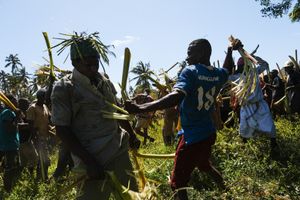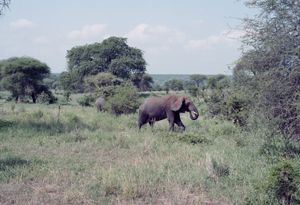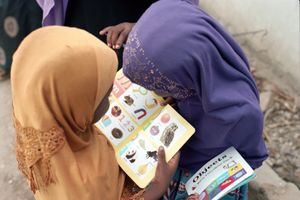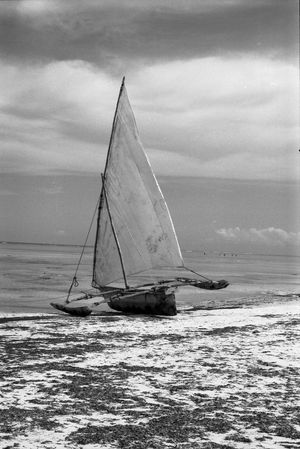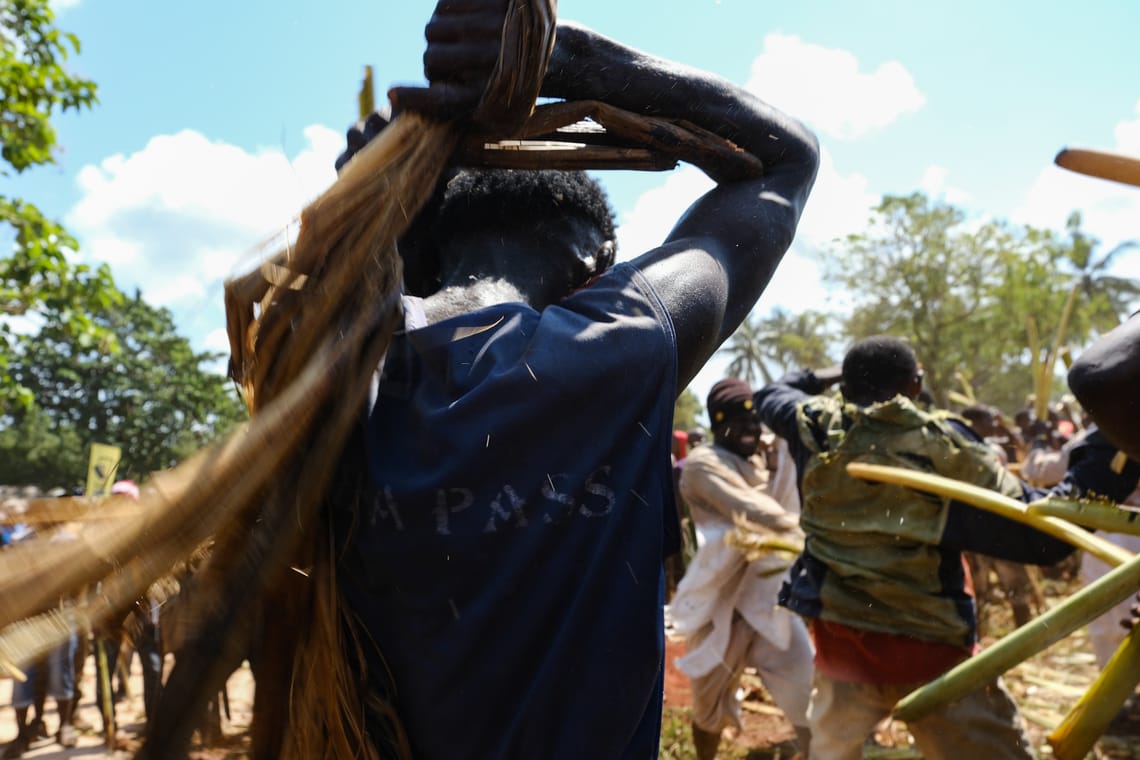
Mwaka Kogwa 2024
Mwaka Kogwa took place on the 16th of July this year, and I couldn't miss the opportunity to witness this event once again. Last year was my first time there; it’s a festival that leaves you with unforgettable memories from its infamous banana stick battle and should not be missed if you’re around Zanzibar.
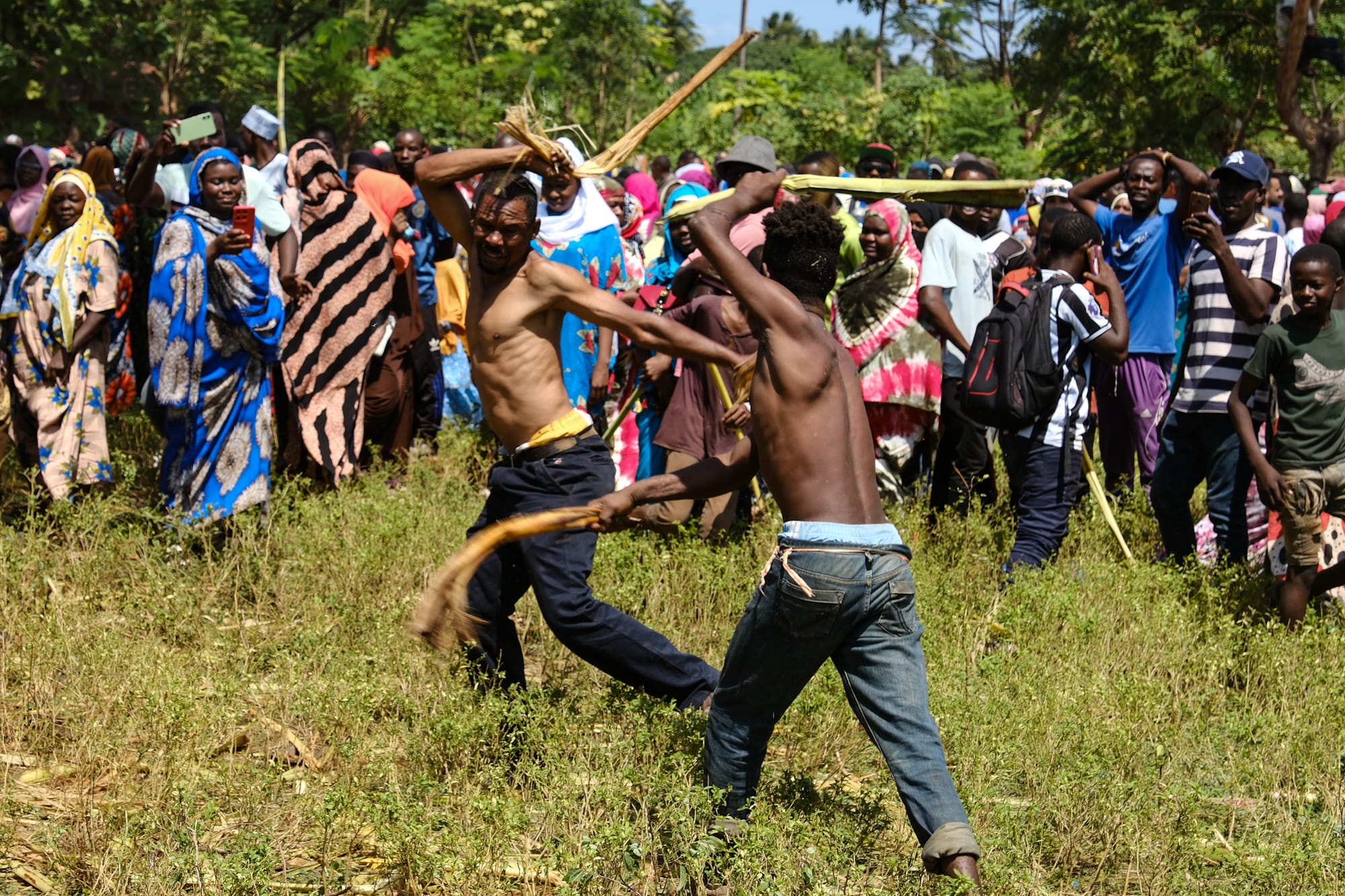
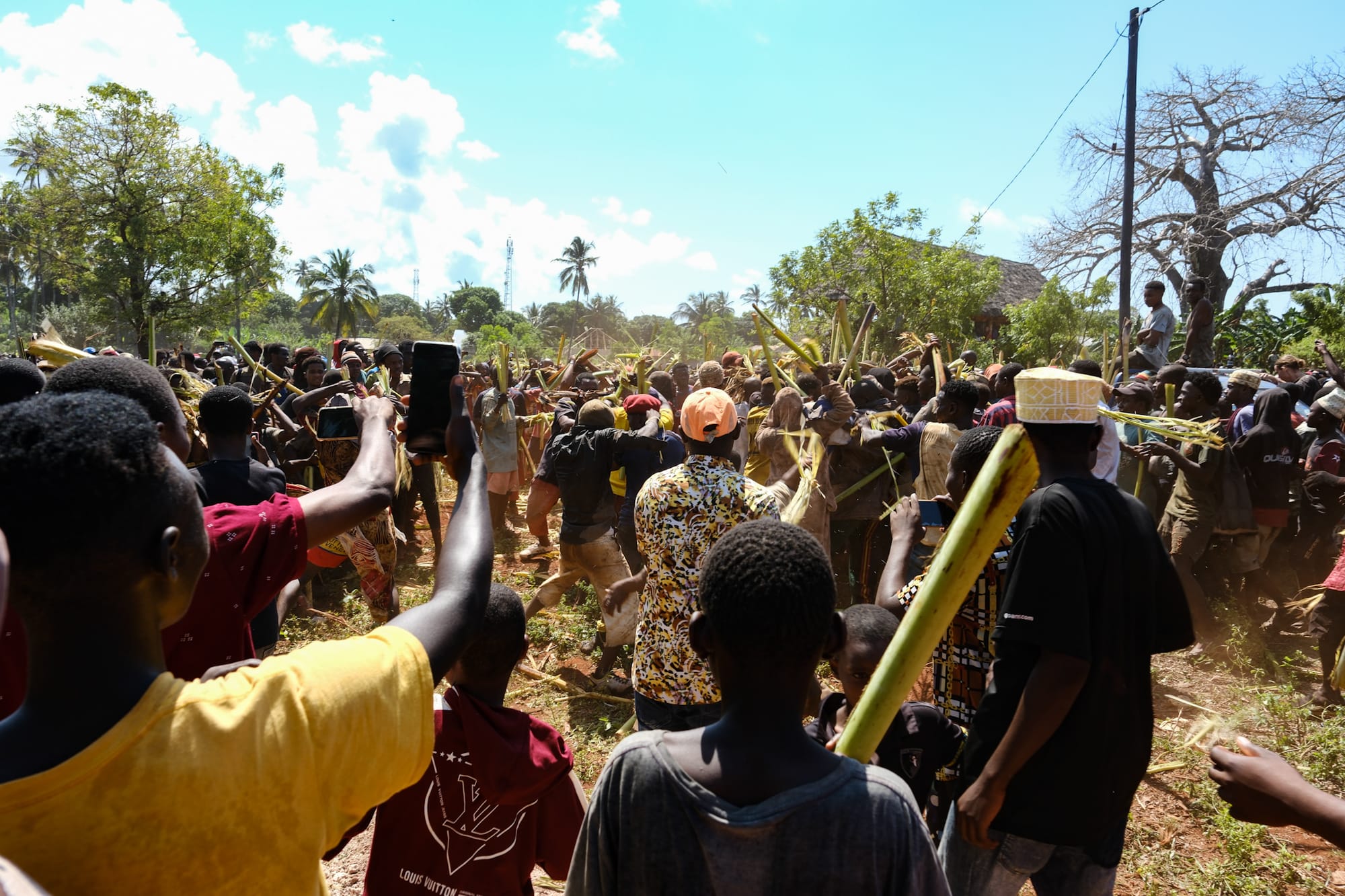
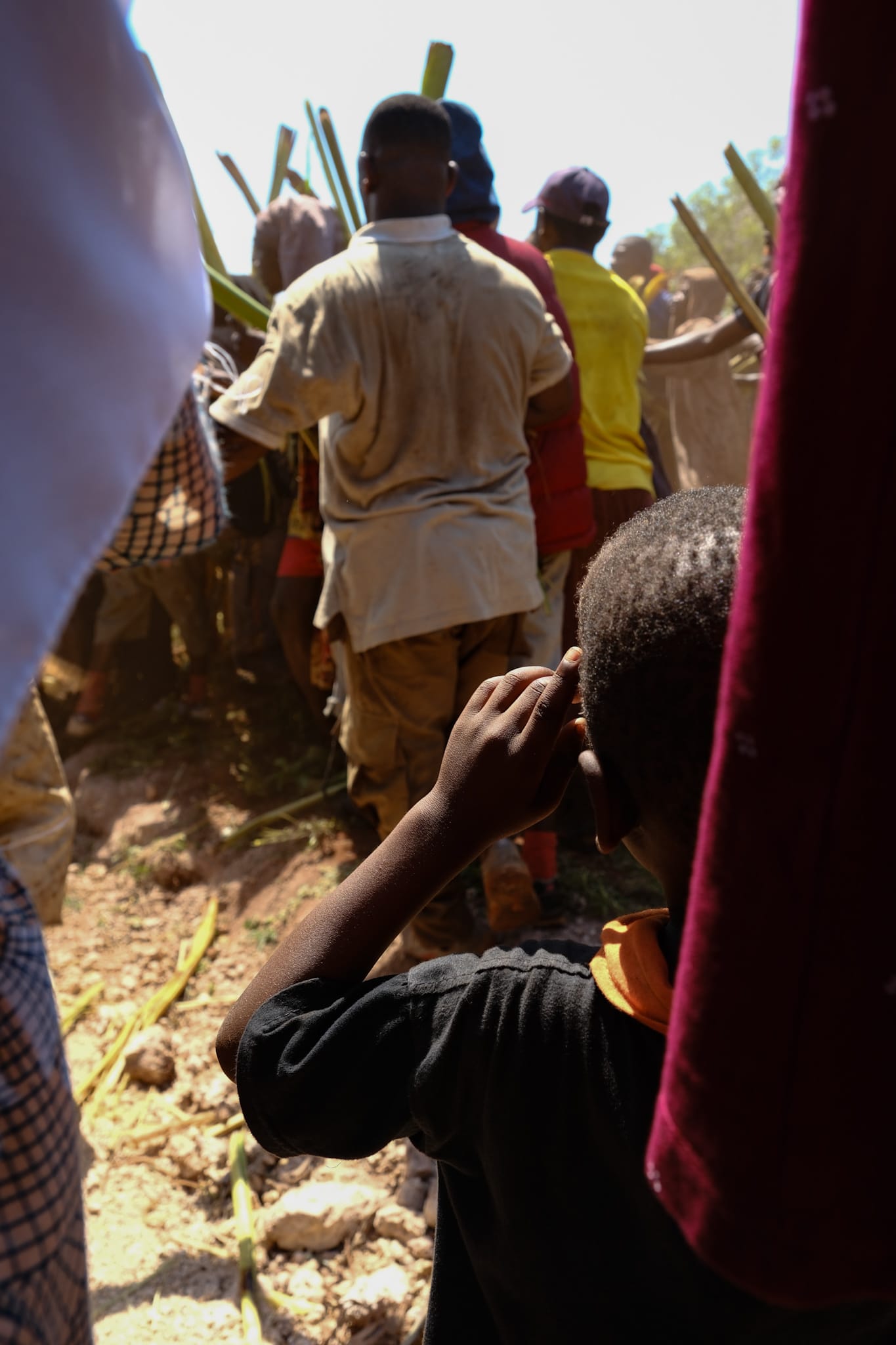
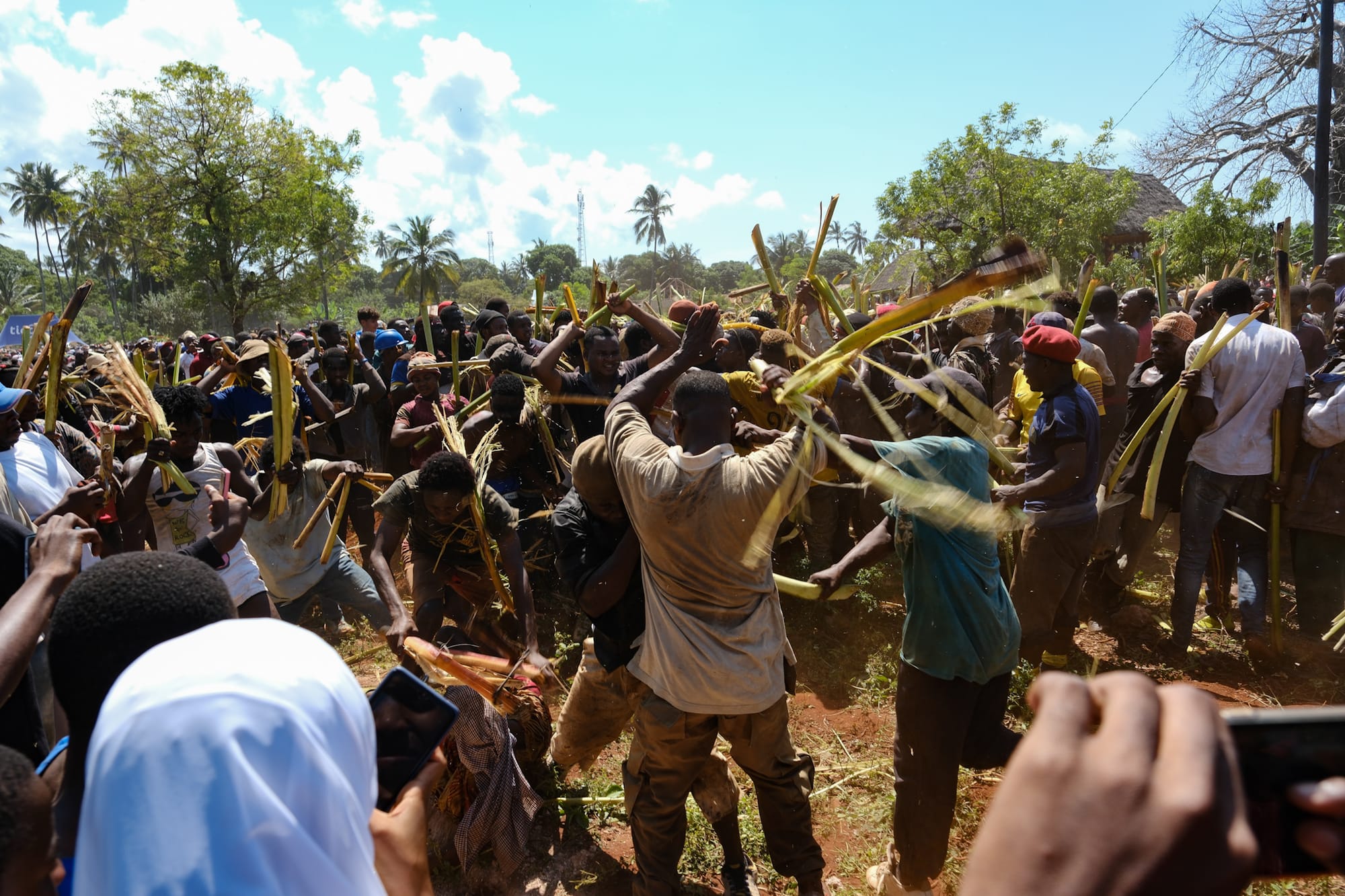
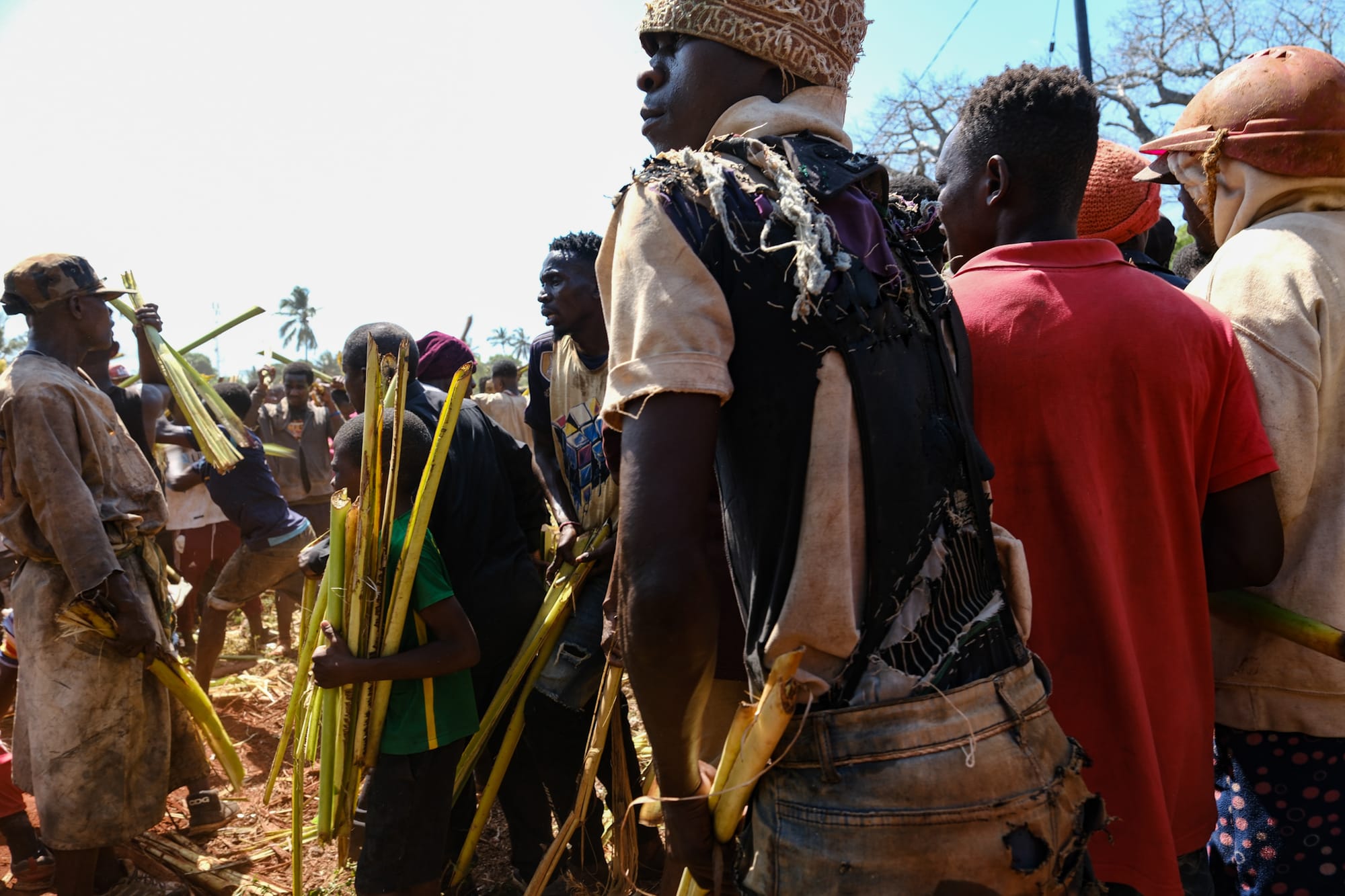
I was lucky this year to team up with my friends from Kuza Cave, who drove me there from Stone Town. After the event, they hosted a screening of a documentary about this celebration, as well as a discussion with locals, where I discovered many interesting facts. I’d definitely recommend getting in touch with them if you wish to attend the festival; it’s worth seeing in person!
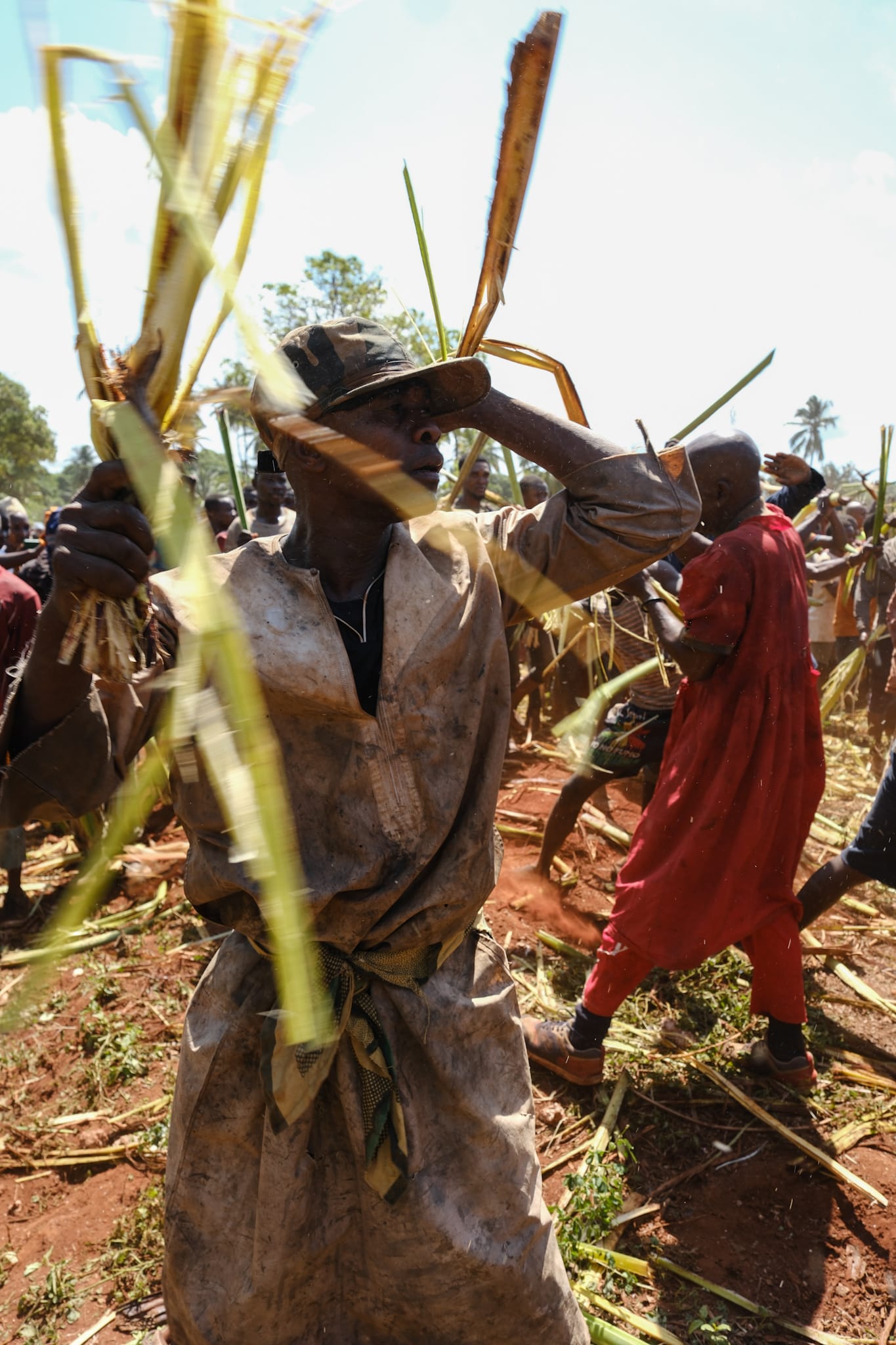
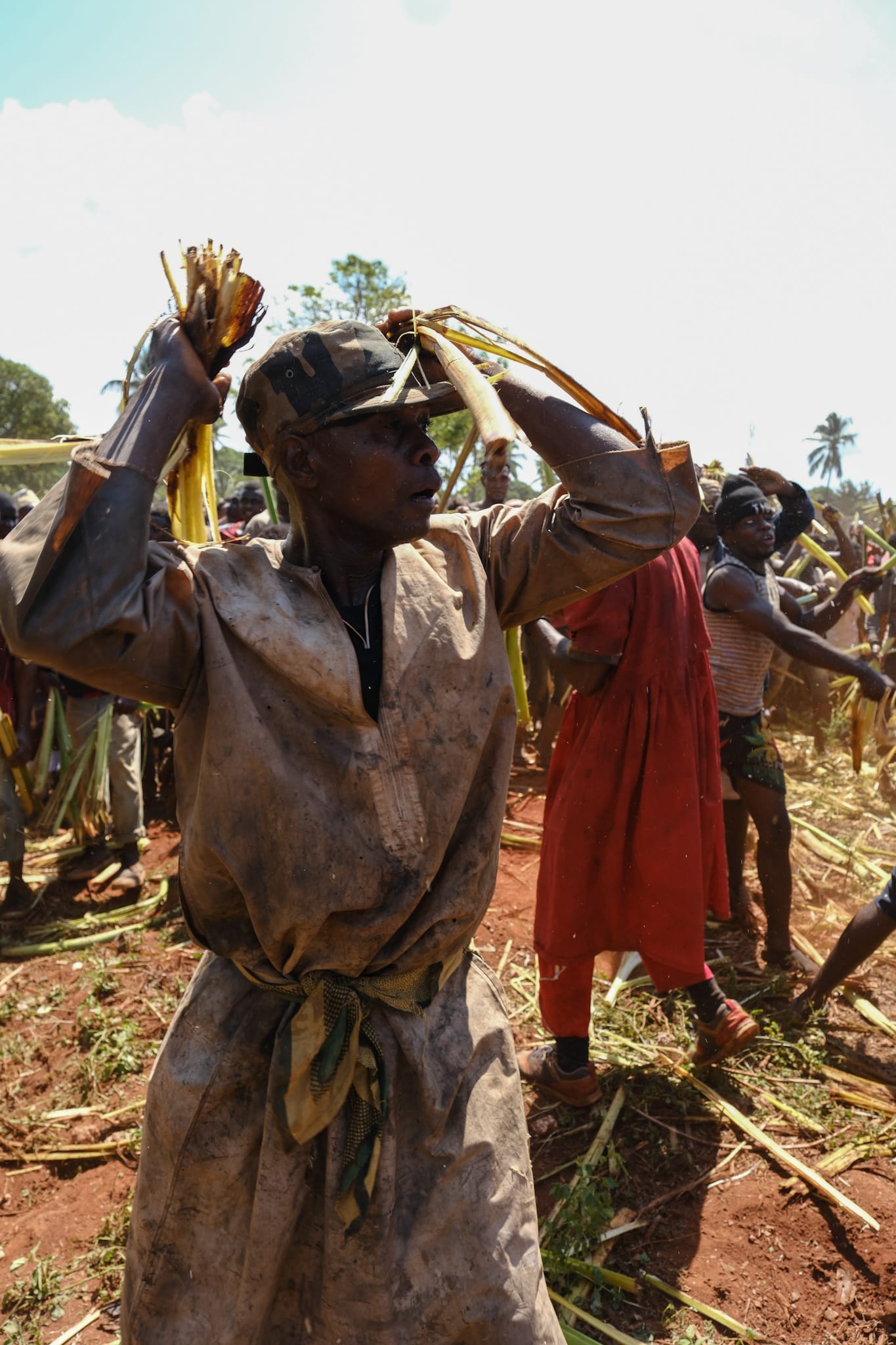
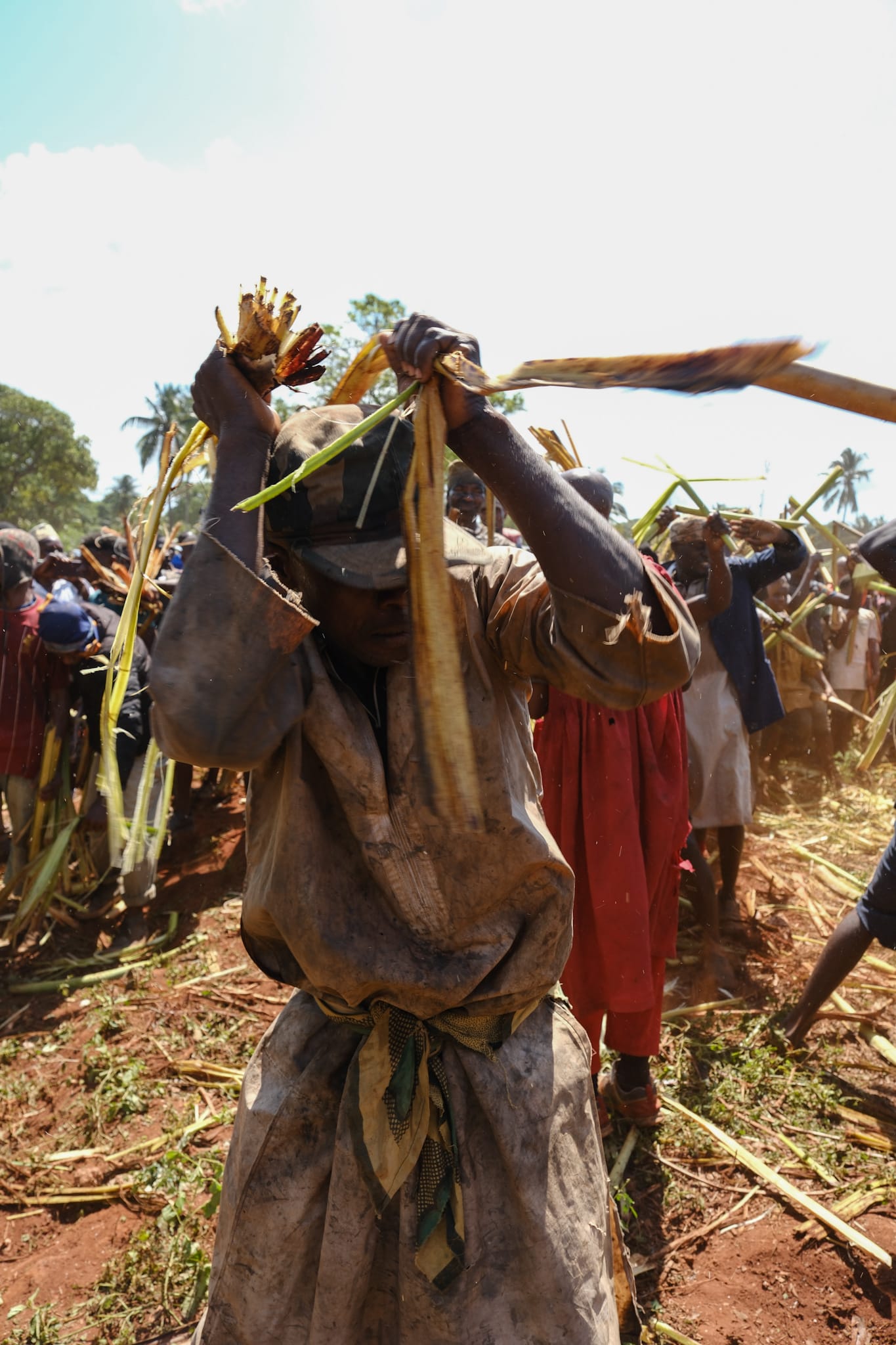
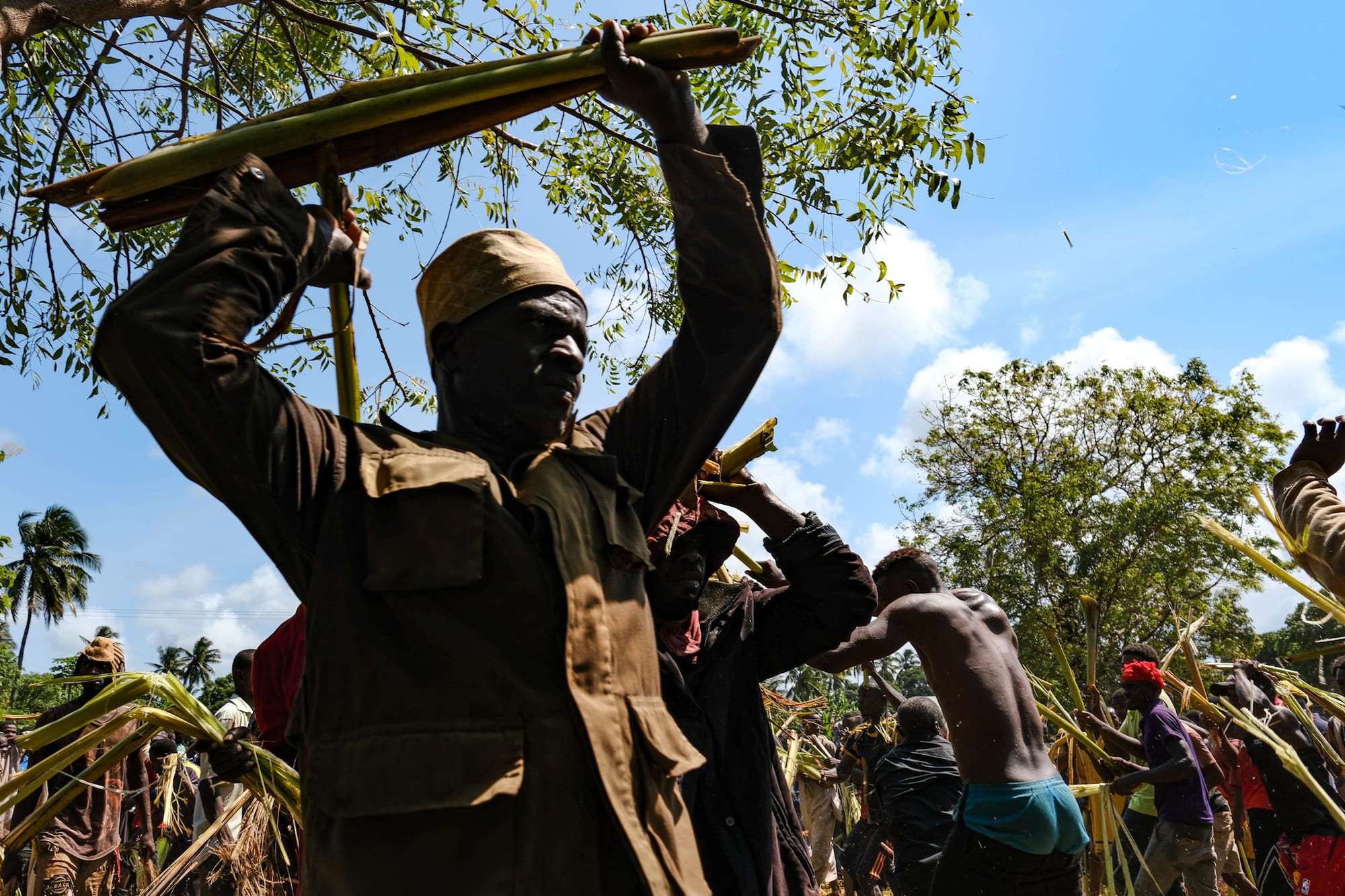
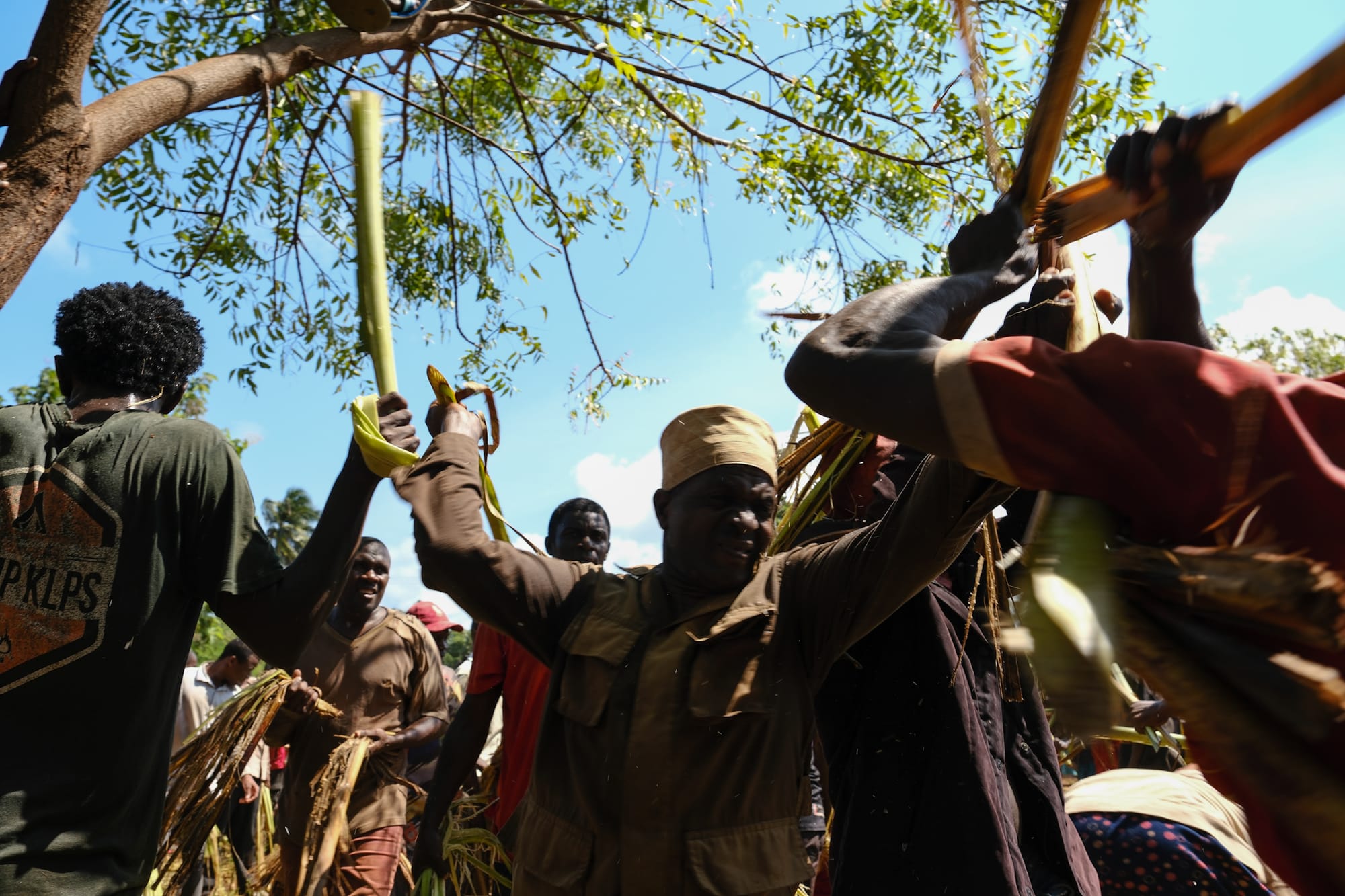
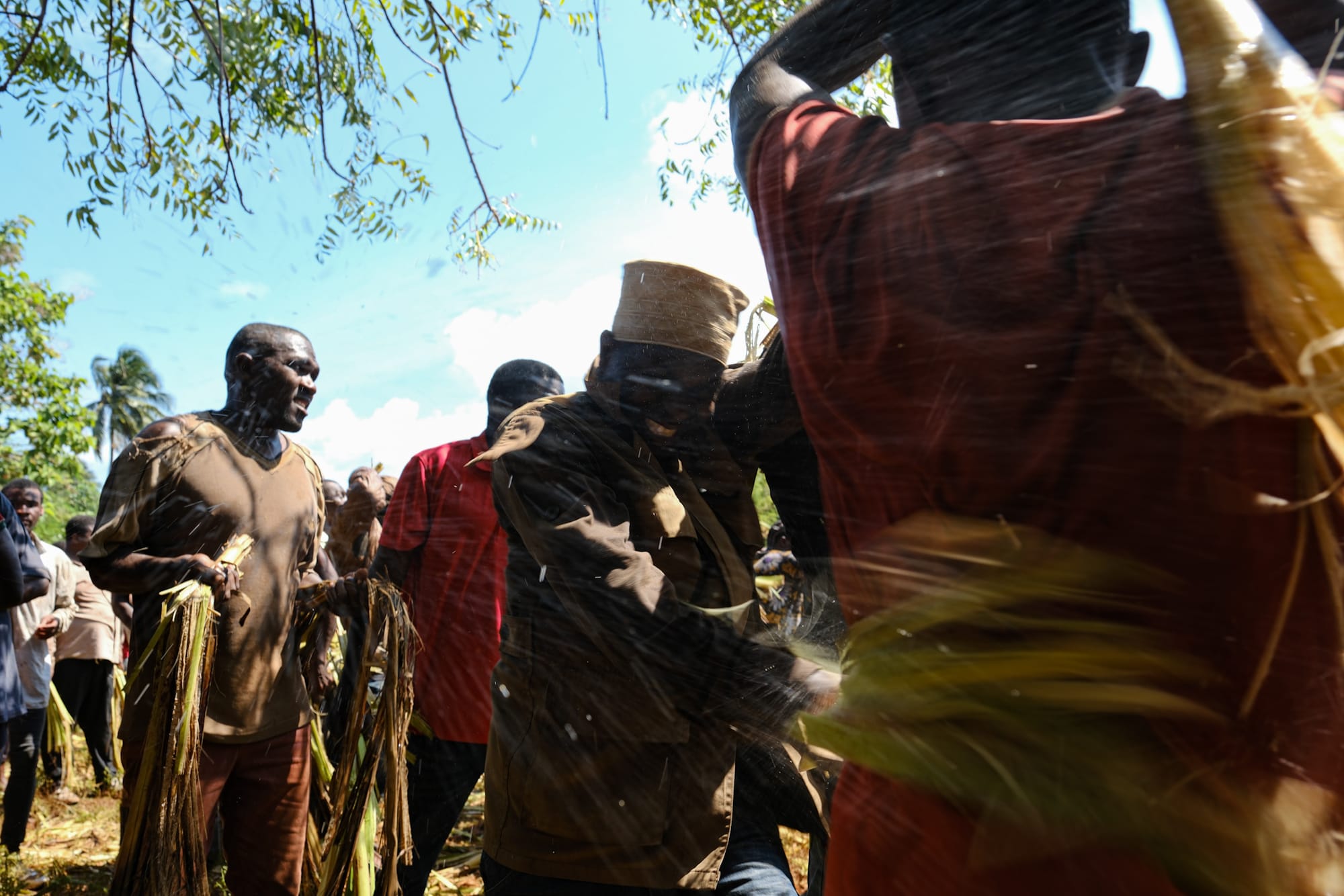
Just like last year, the energy felt during the battle was strong. The contrast between the battle and what happens after is remarkable. First, you see men hitting each other violently with banana sticks, and as soon as they are “unarmed,” the fight stops and smiles appear. Despite most attendants being respectful and playing fair, the occasional post-fight argument happens.
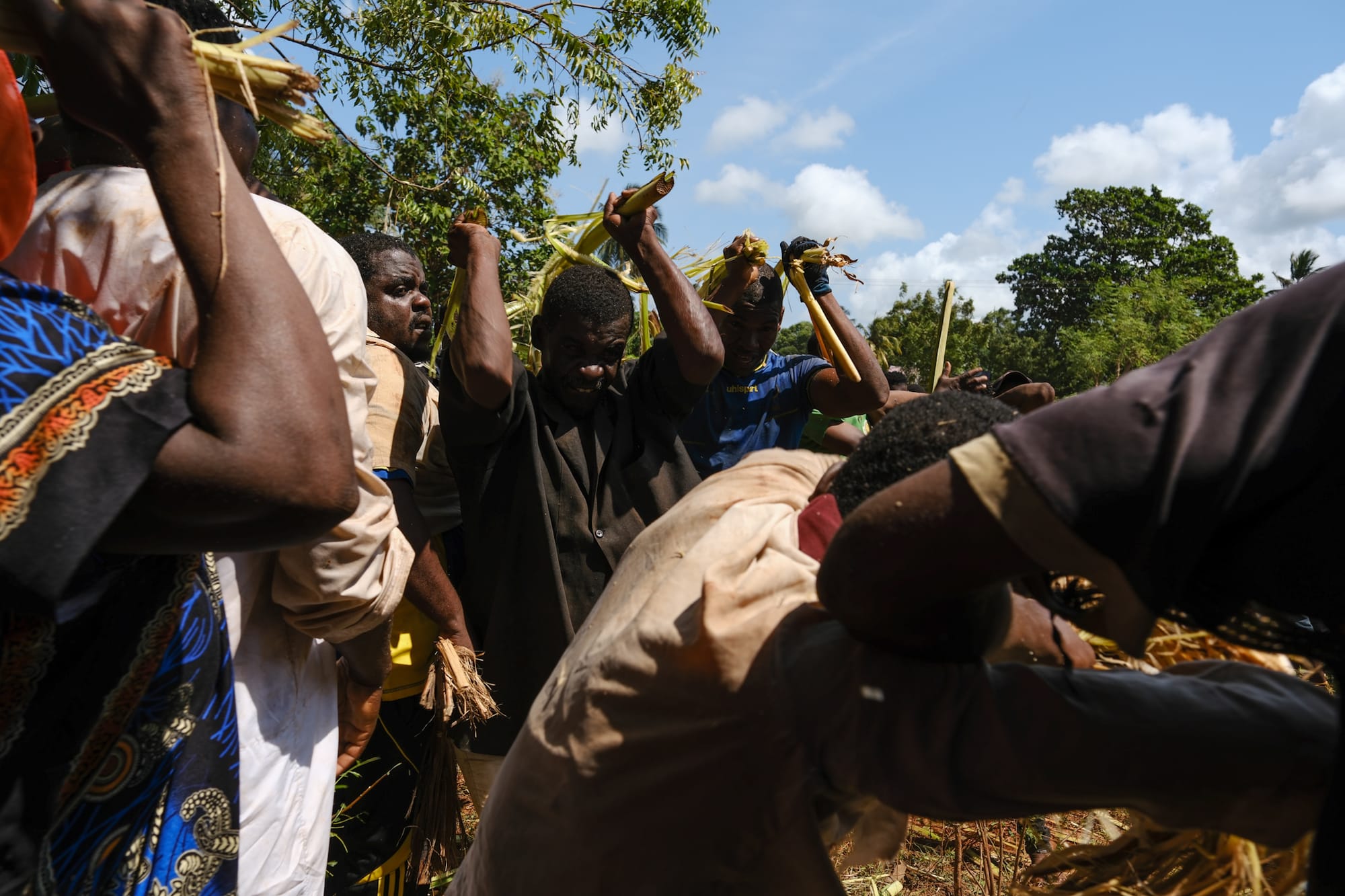
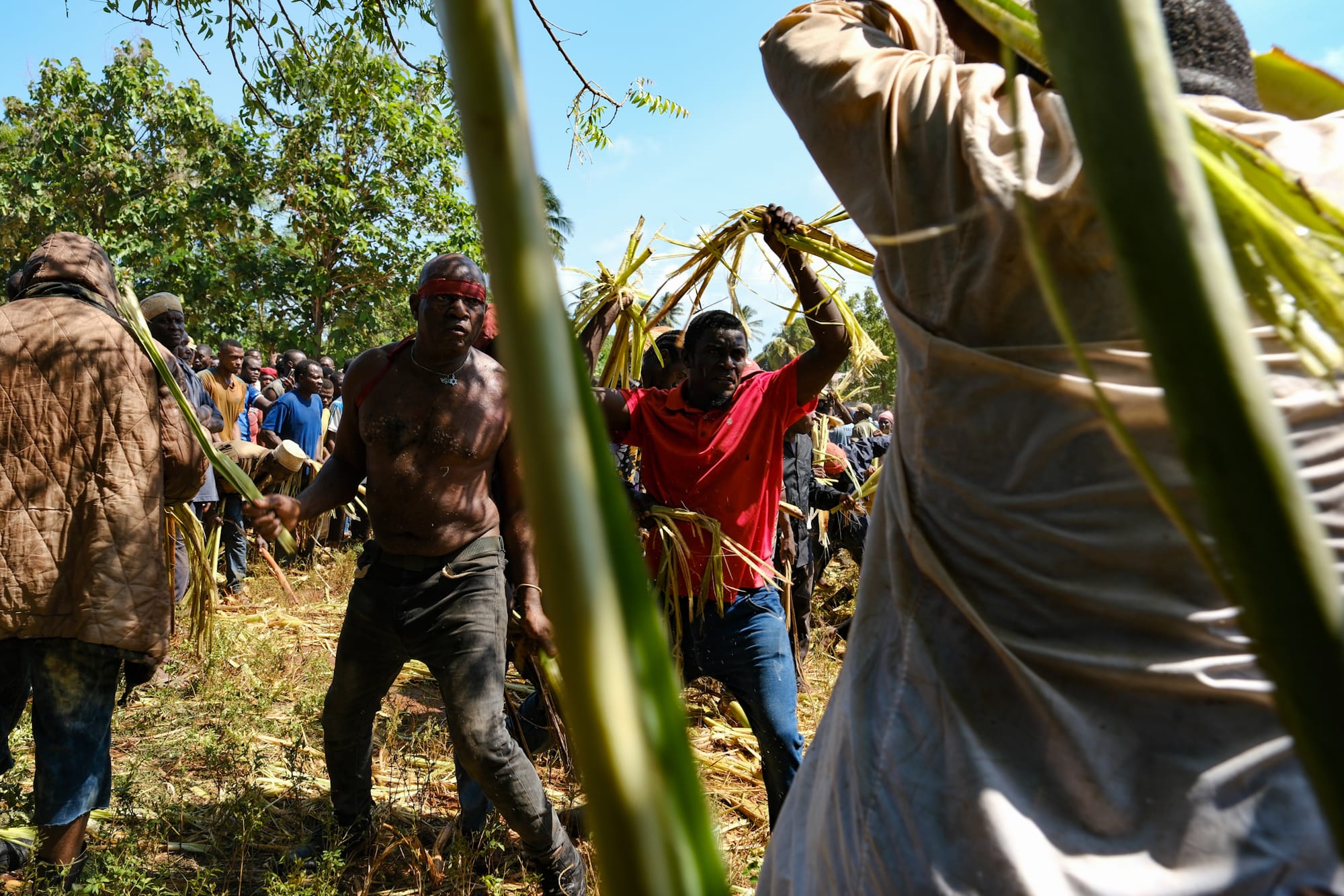
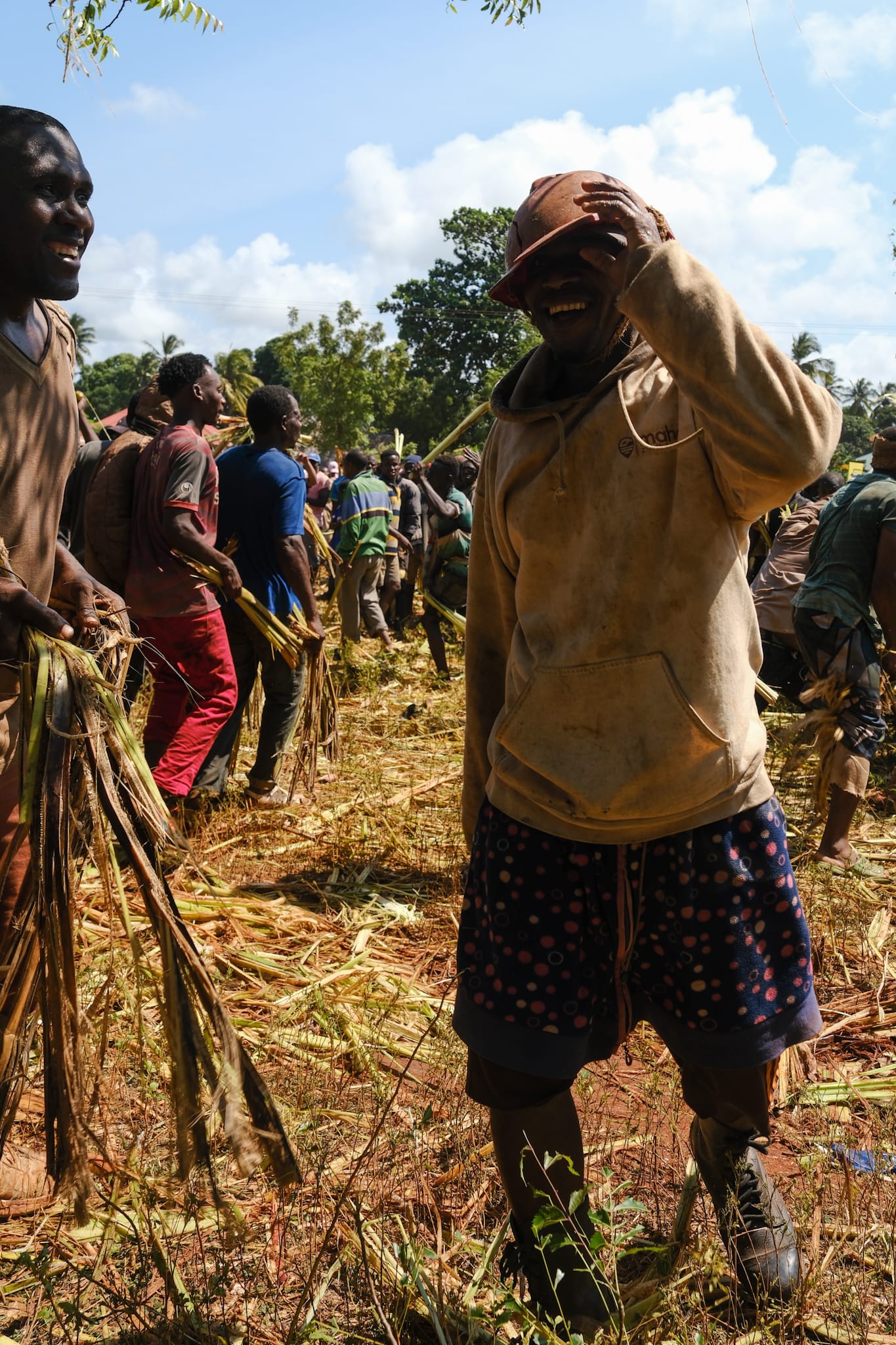
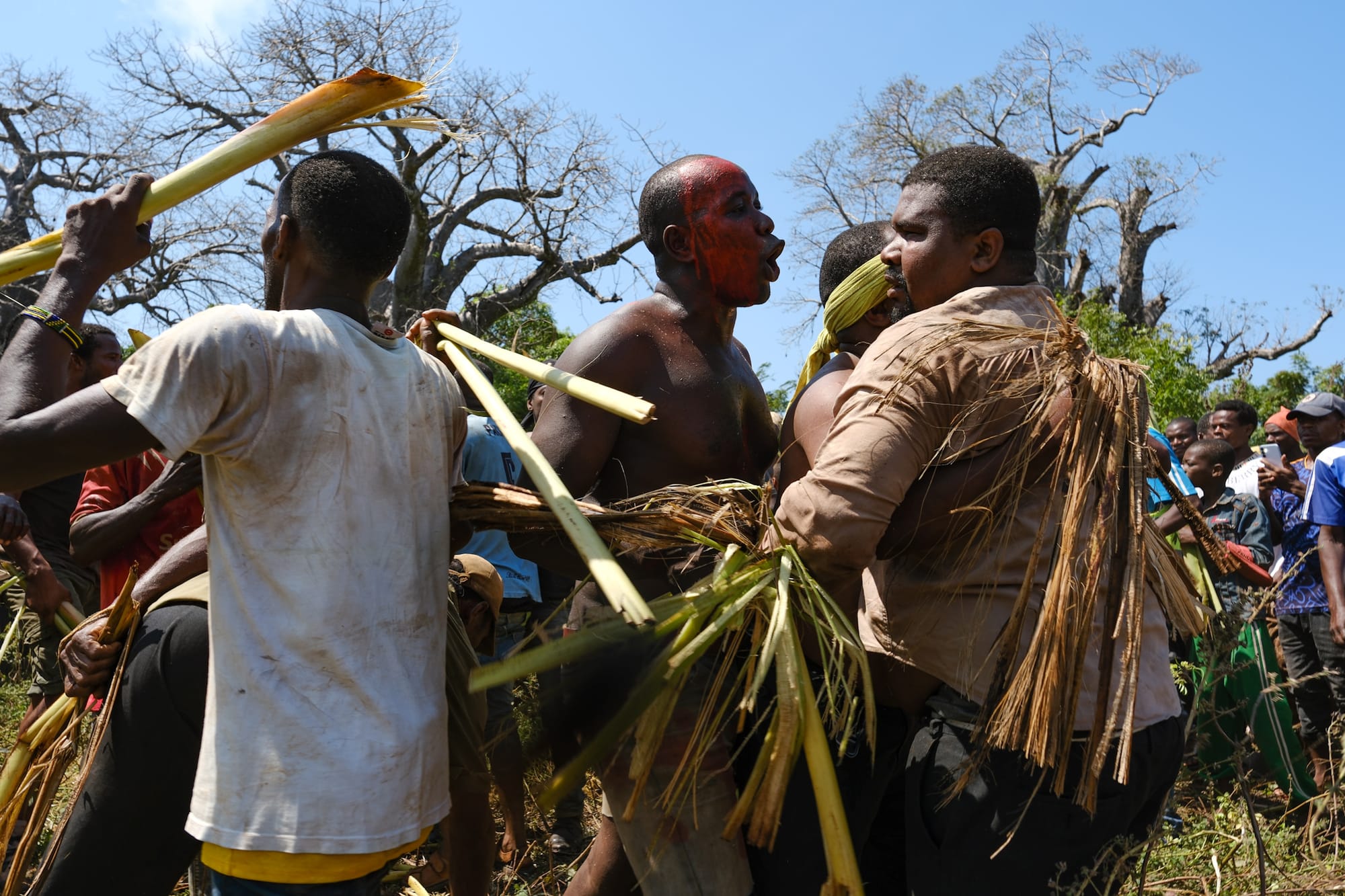
Two participants arguing with each other while someone is holding one of them back. The stick fighting continues around them.
I tried to get as close as I could to the action to get the best shots. Everything moves quickly, people push each other, and before you know it, you’re in the middle of the battle with people slapping each other over your head. Inevitably, I got hit a couple of times, but banana sticks are fairly painless; it just leaves a lot of juice on your hair, skin, clothes, and camera.
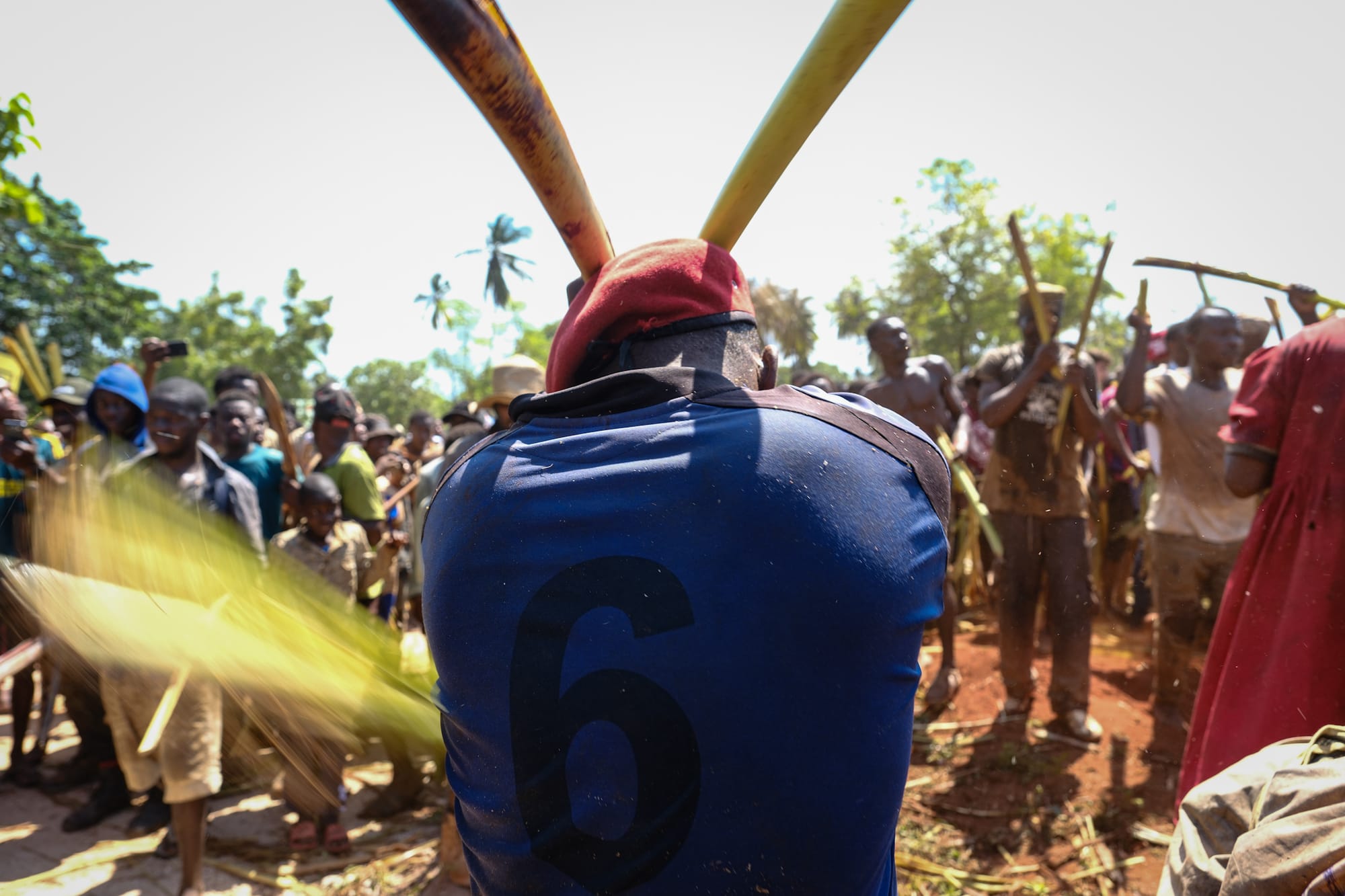
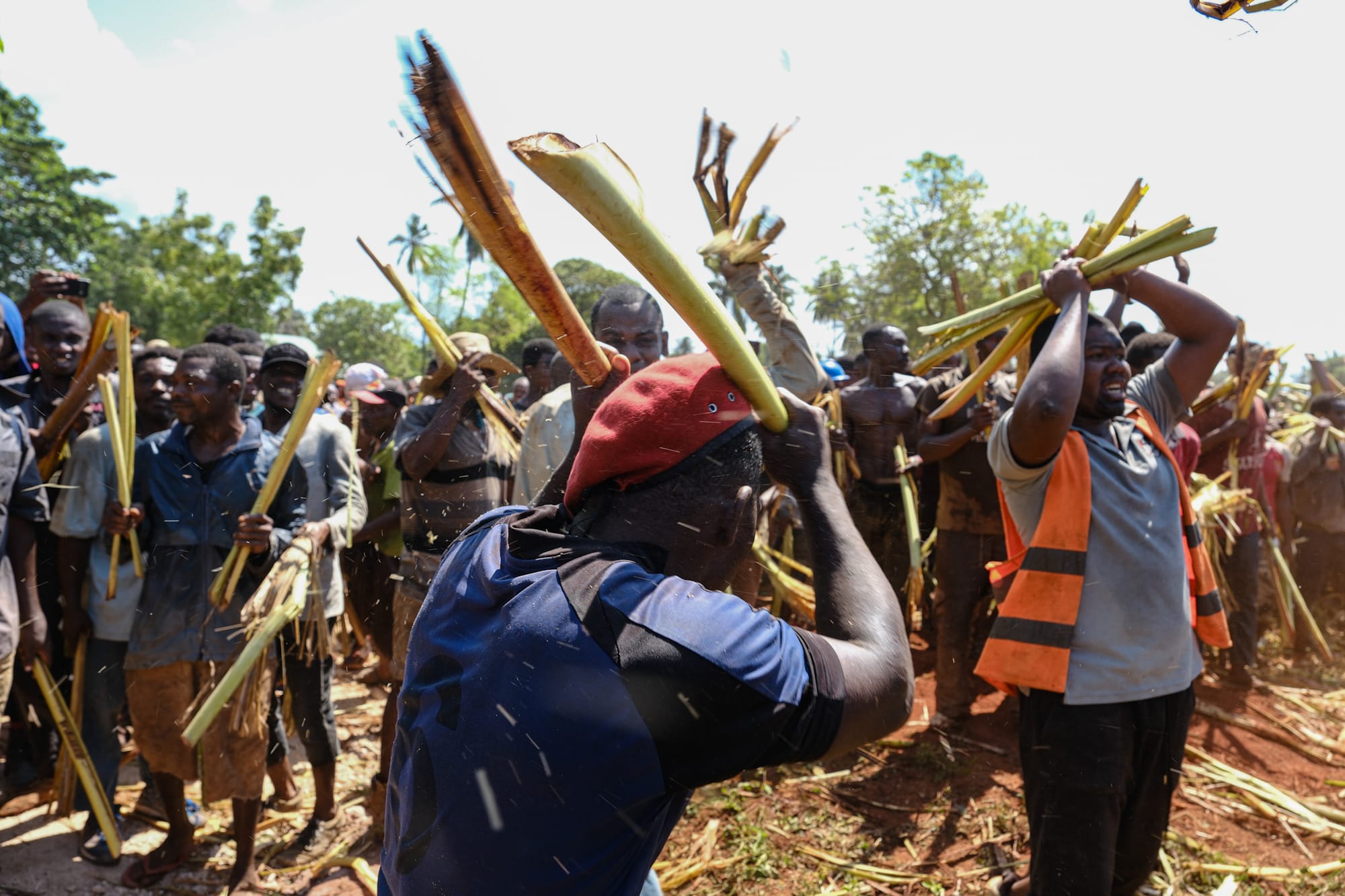
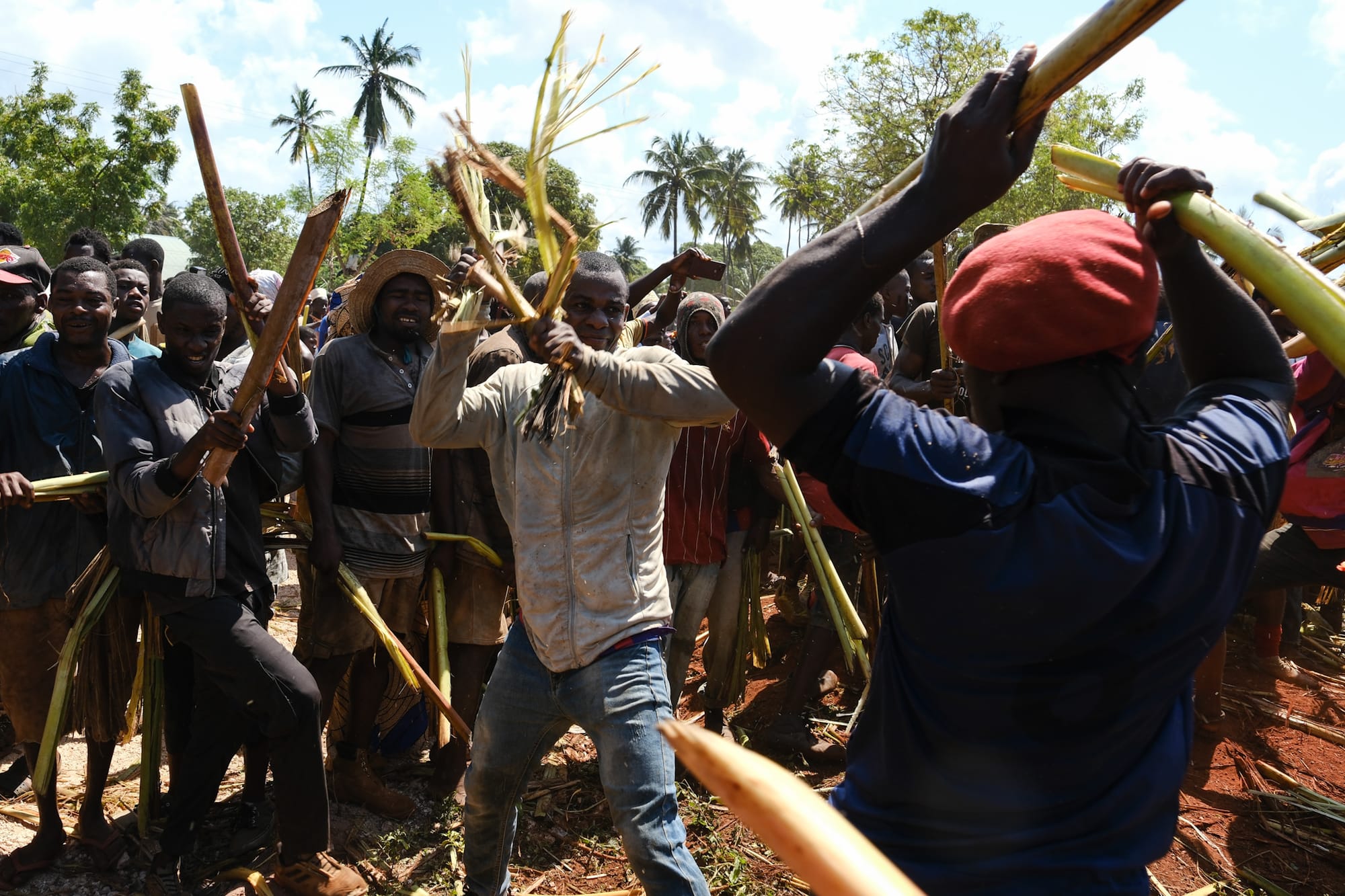
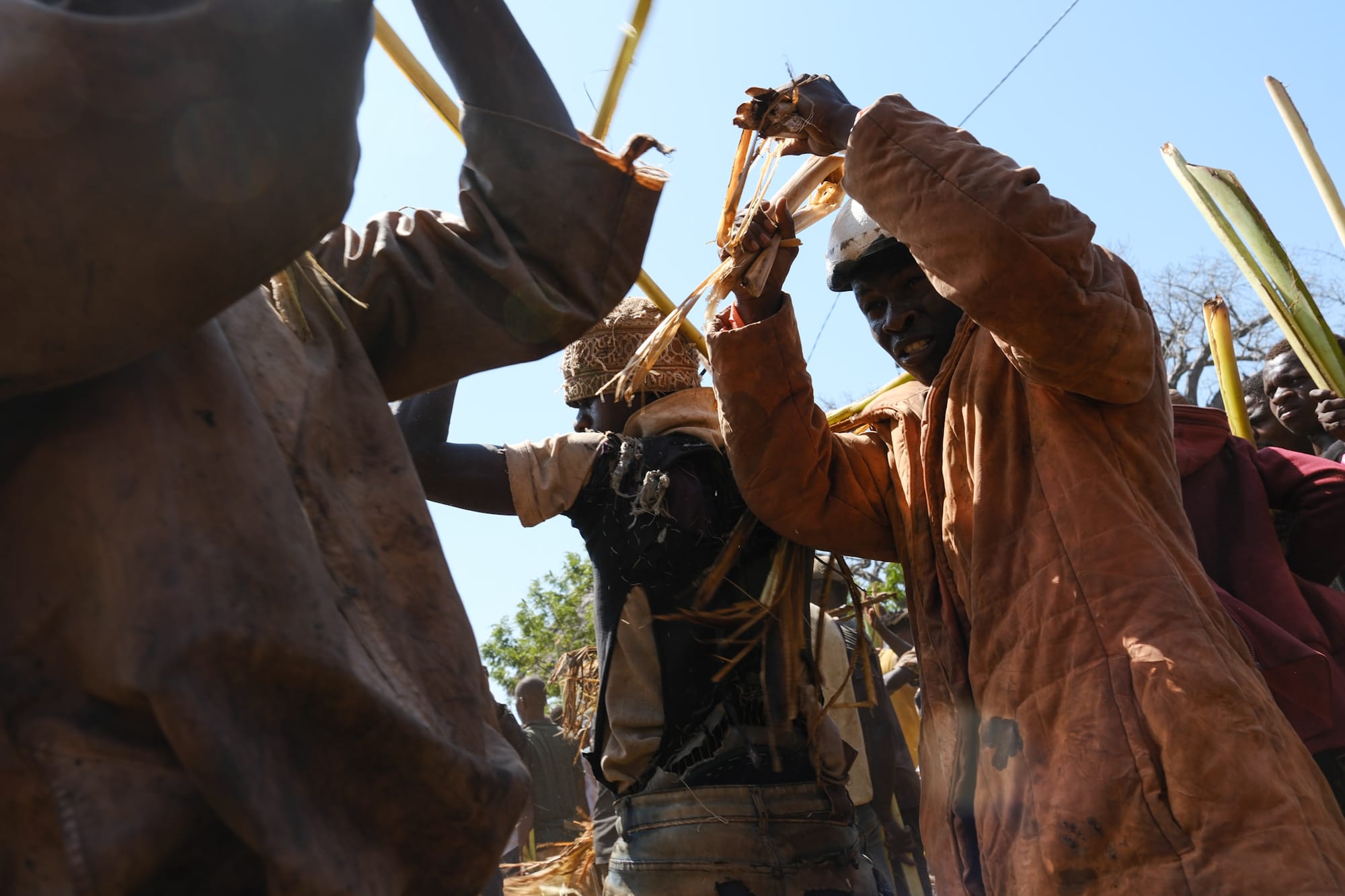
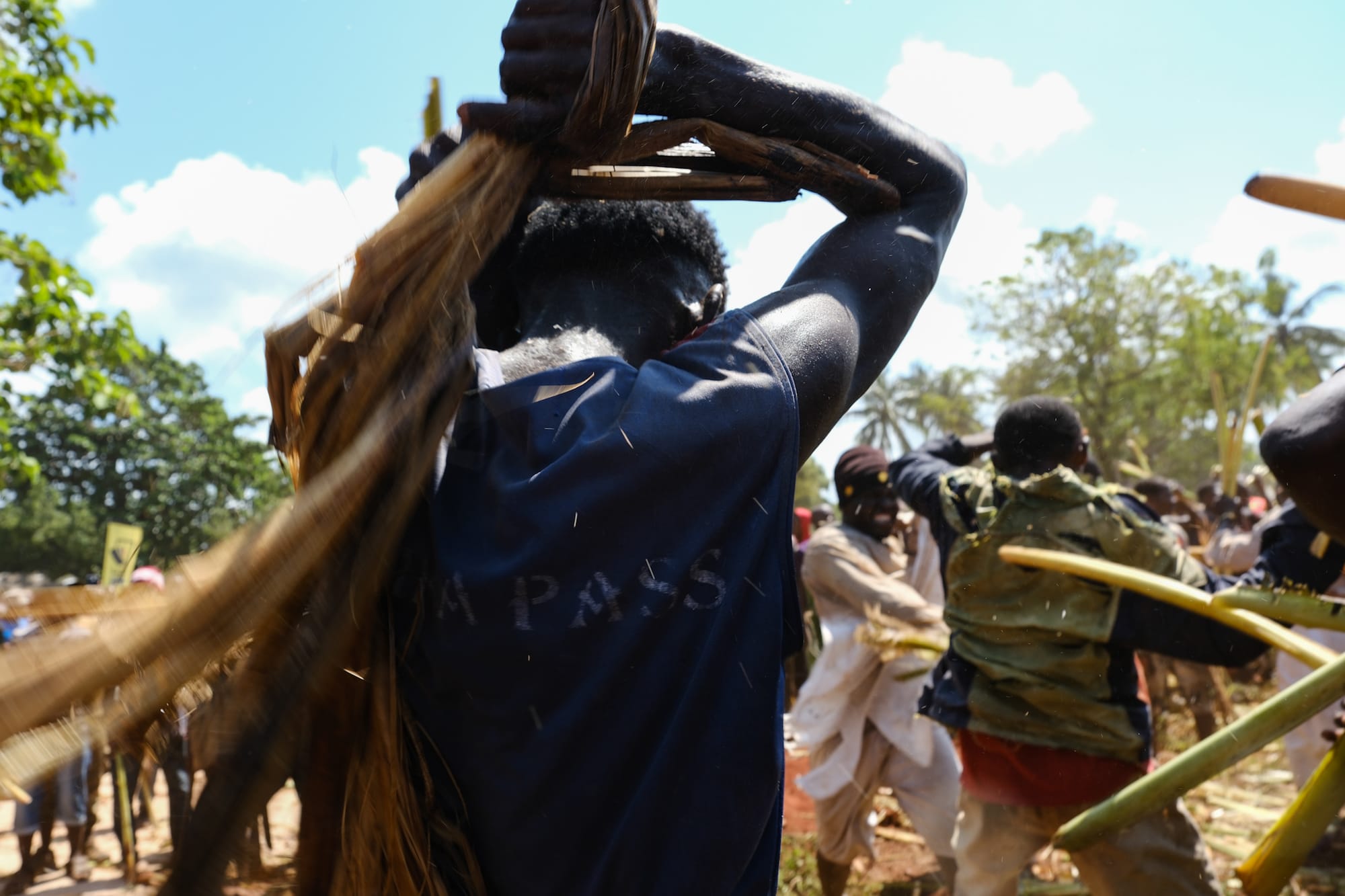
Unfortunately, the tradition itself is not very well documented, and there are conflicting theories found over the internet. The elders keep it alive, but it is feared that the younger generation might not uphold it the same way it used to be. Historically, the same celebration was held in Mombasa, Kenya, but eventually stopped due to only a few elders attending it. The islands of Pemba and Mafia also hold this celebration, but at a much smaller scale than the one held in Makunduchi, Zanzibar.
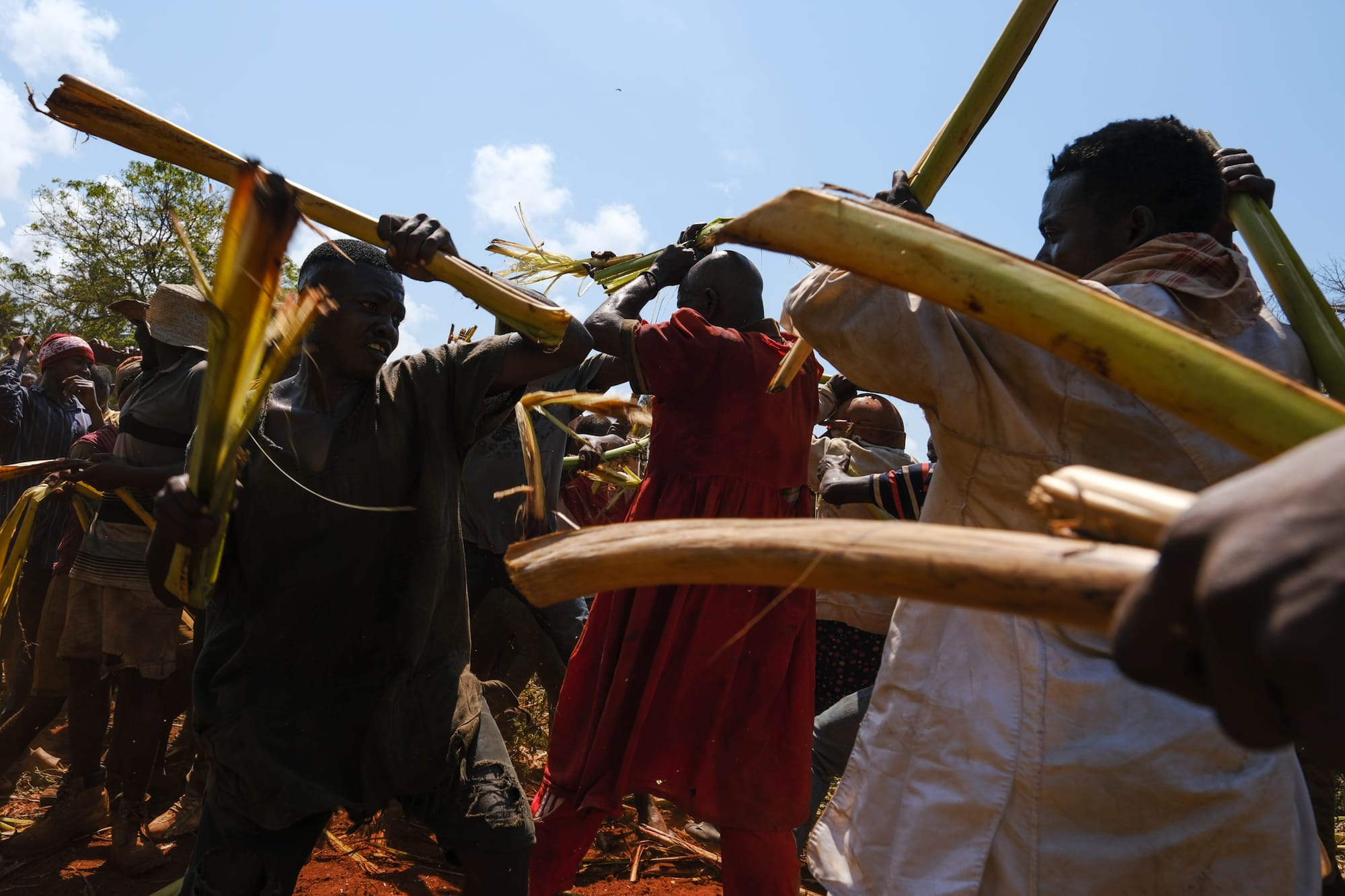
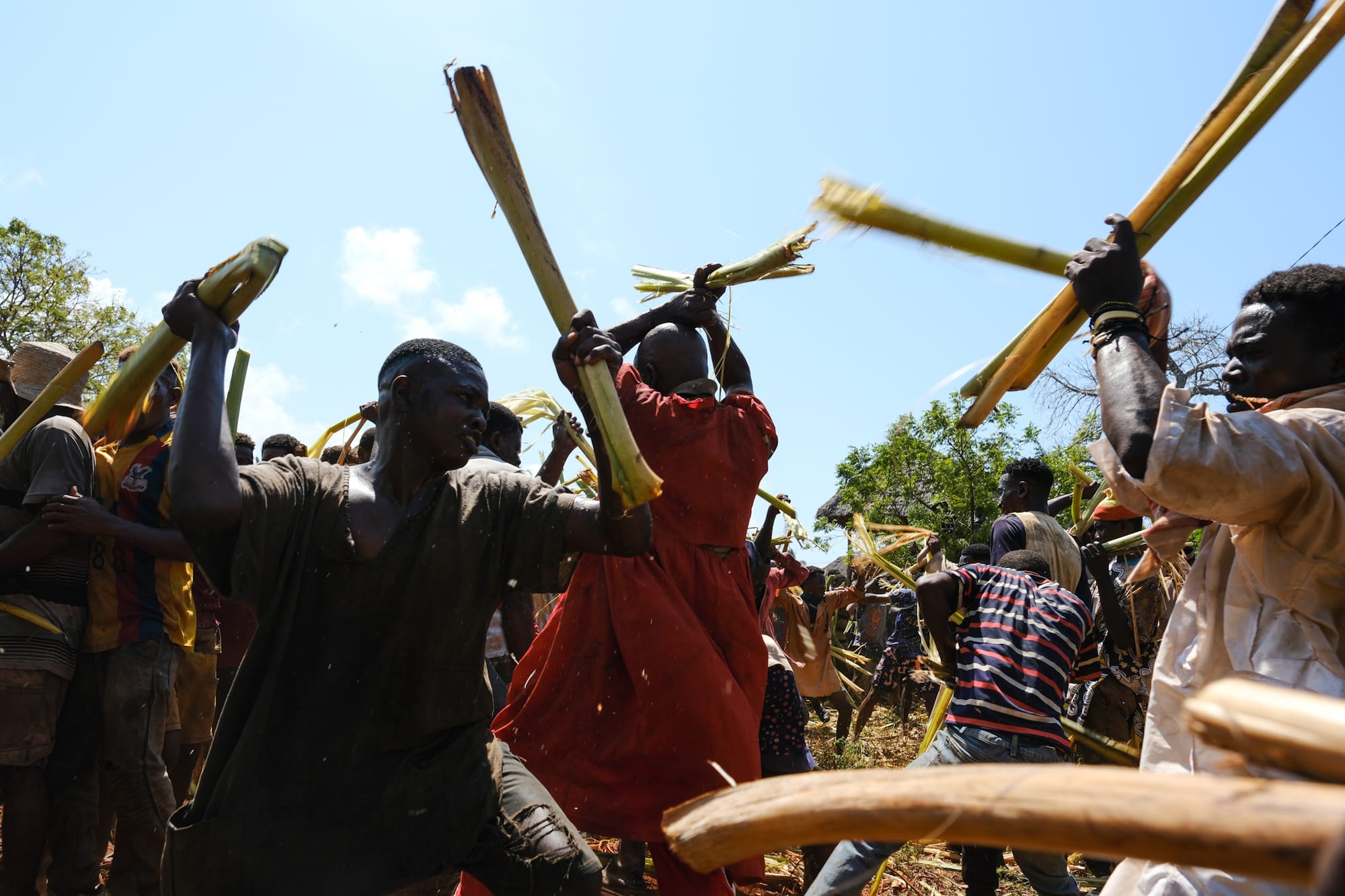
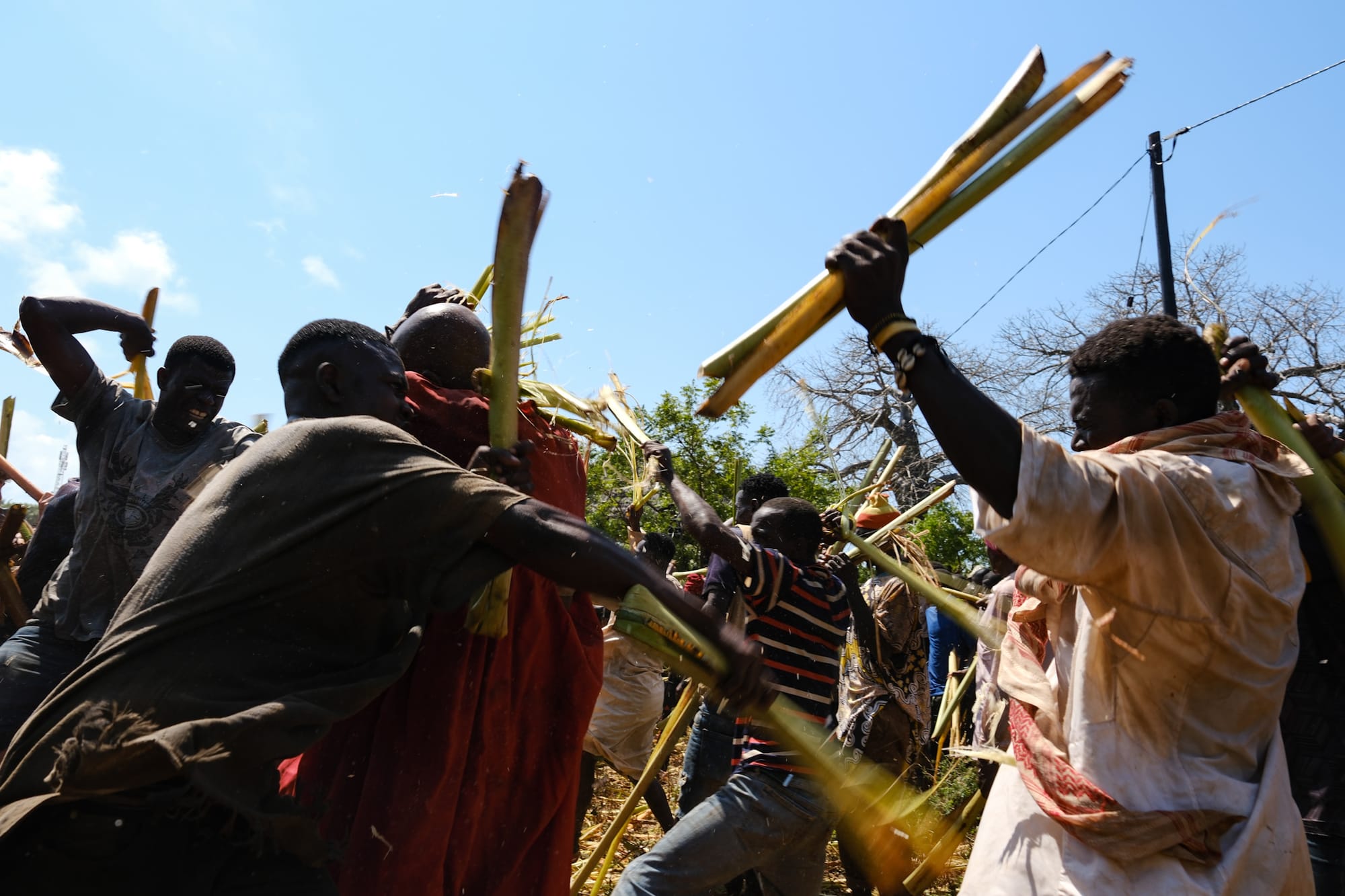
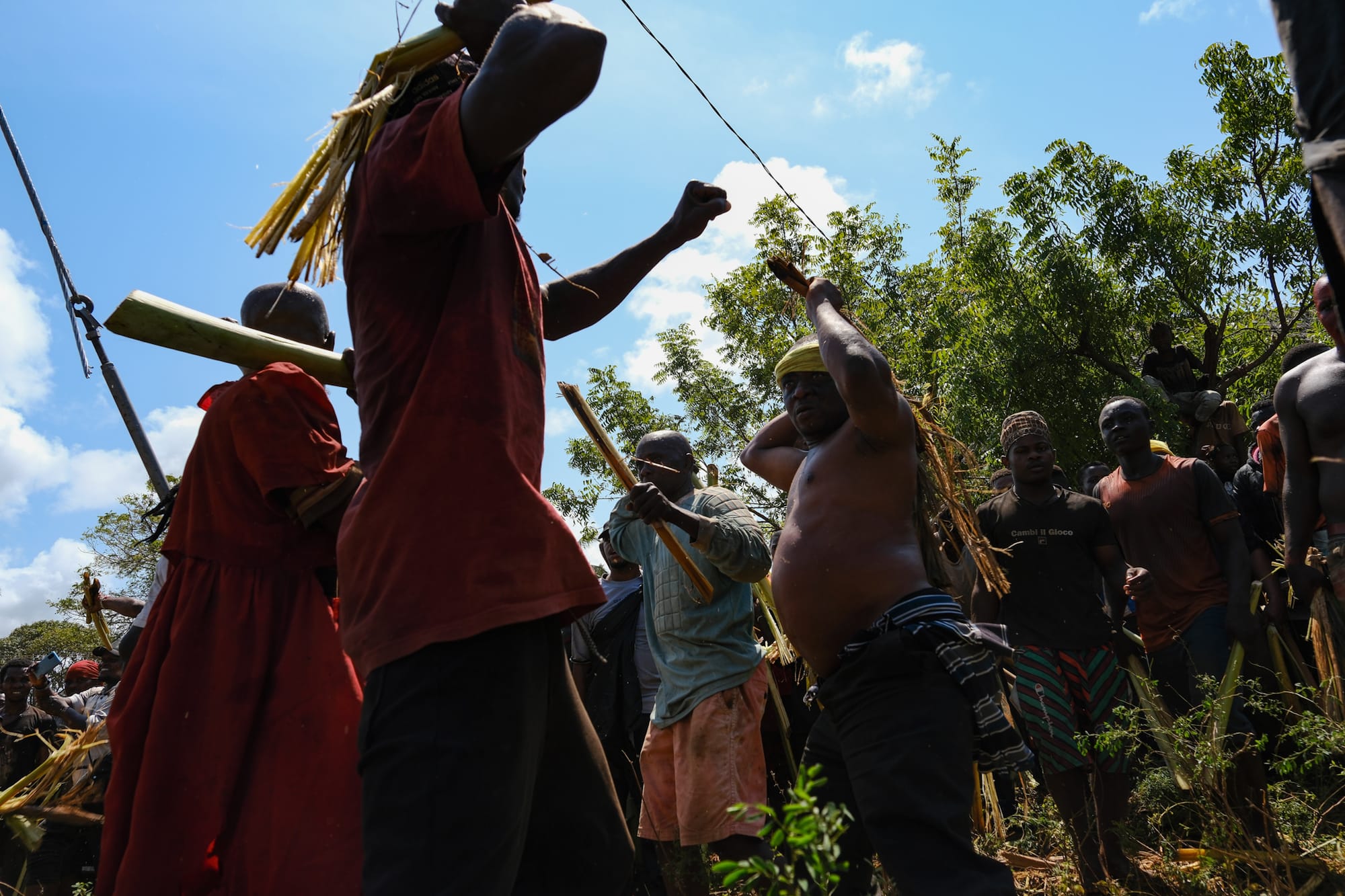
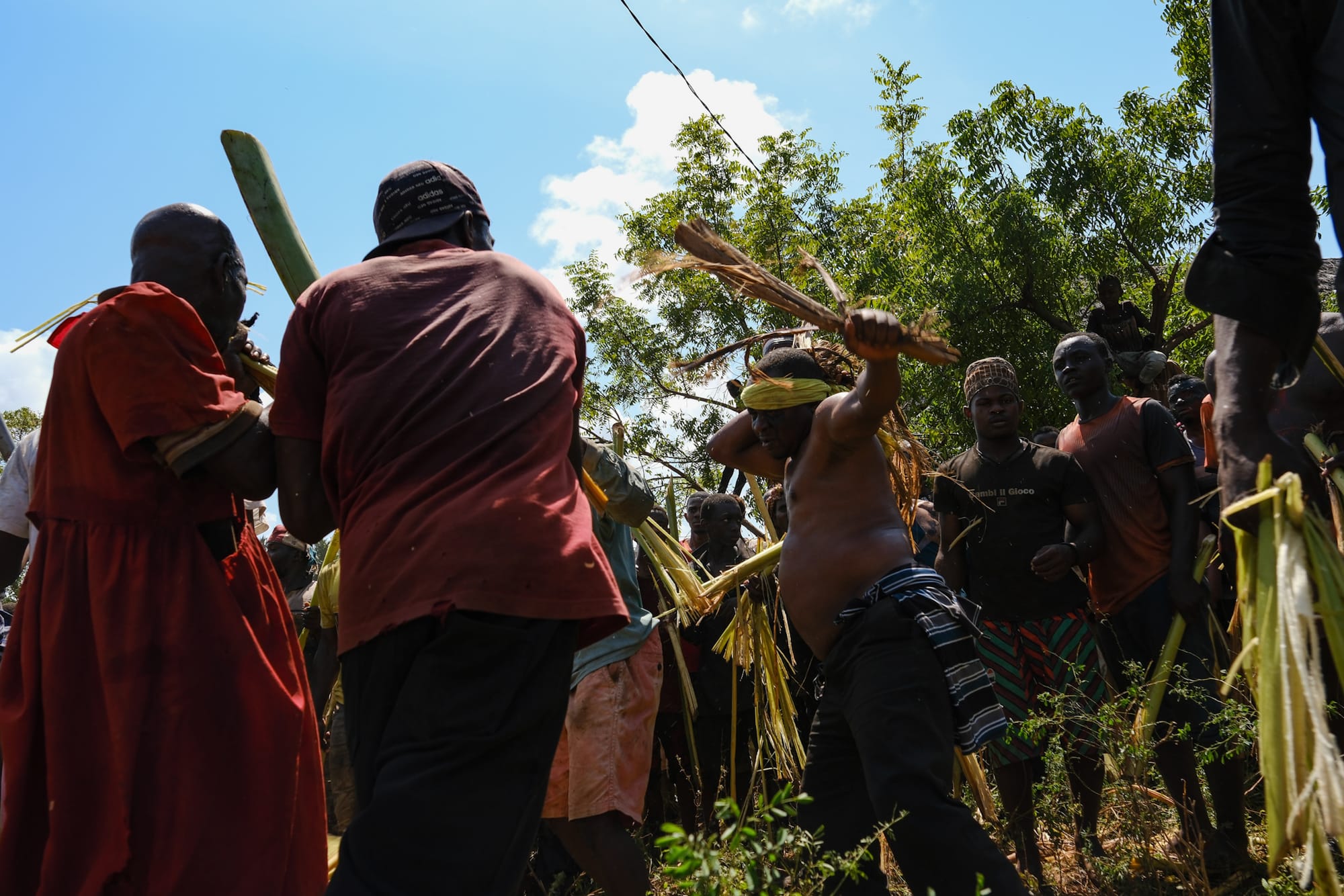
The banana stick battle is the main event, happening on the first day of this four-day celebration. People hit each other with banana stems to let go of grudges and anger from the past year. It also opposes the south of the village with the north. Only men participate in the fighting, while women dress up well and sing songs.
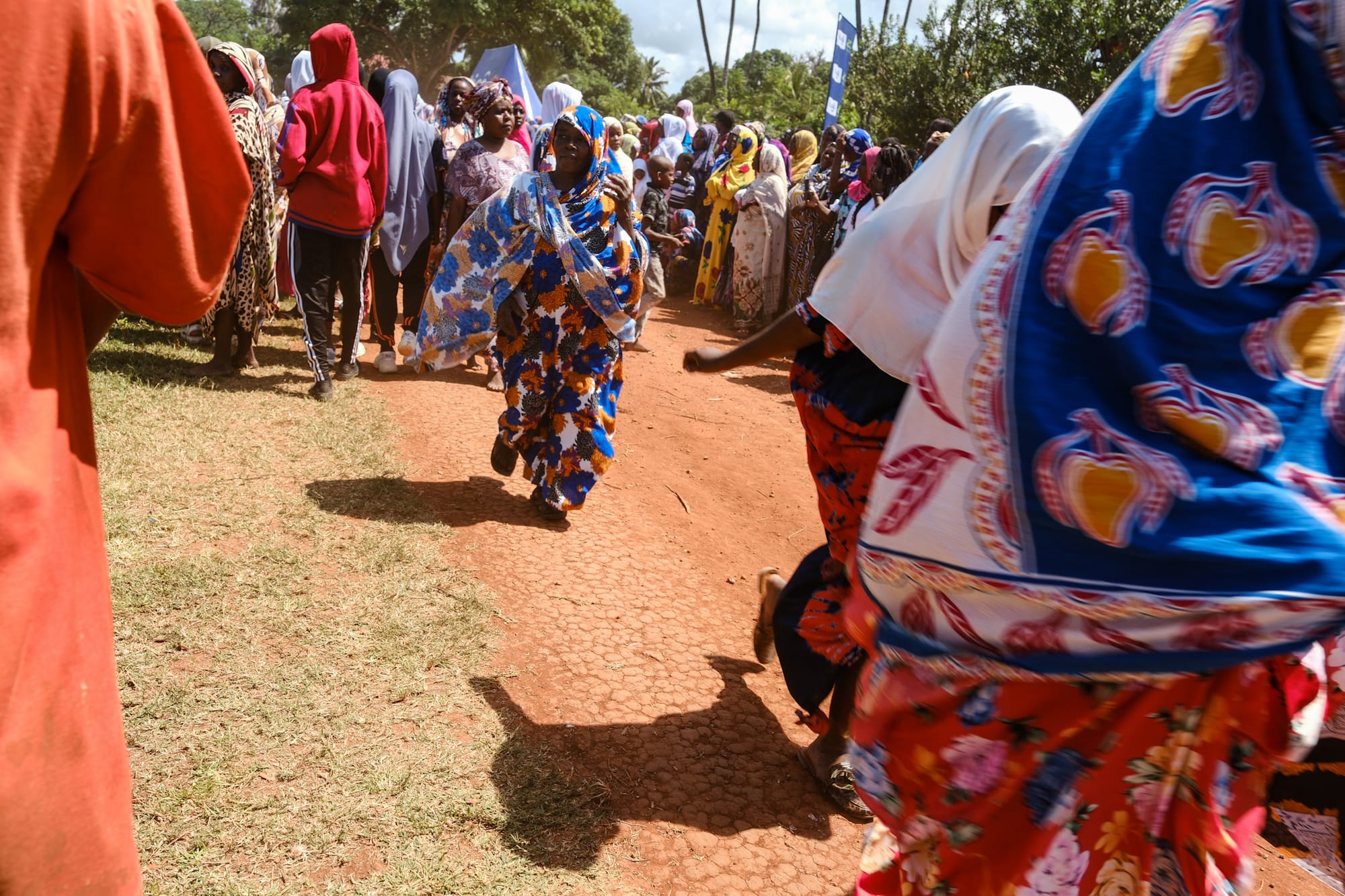
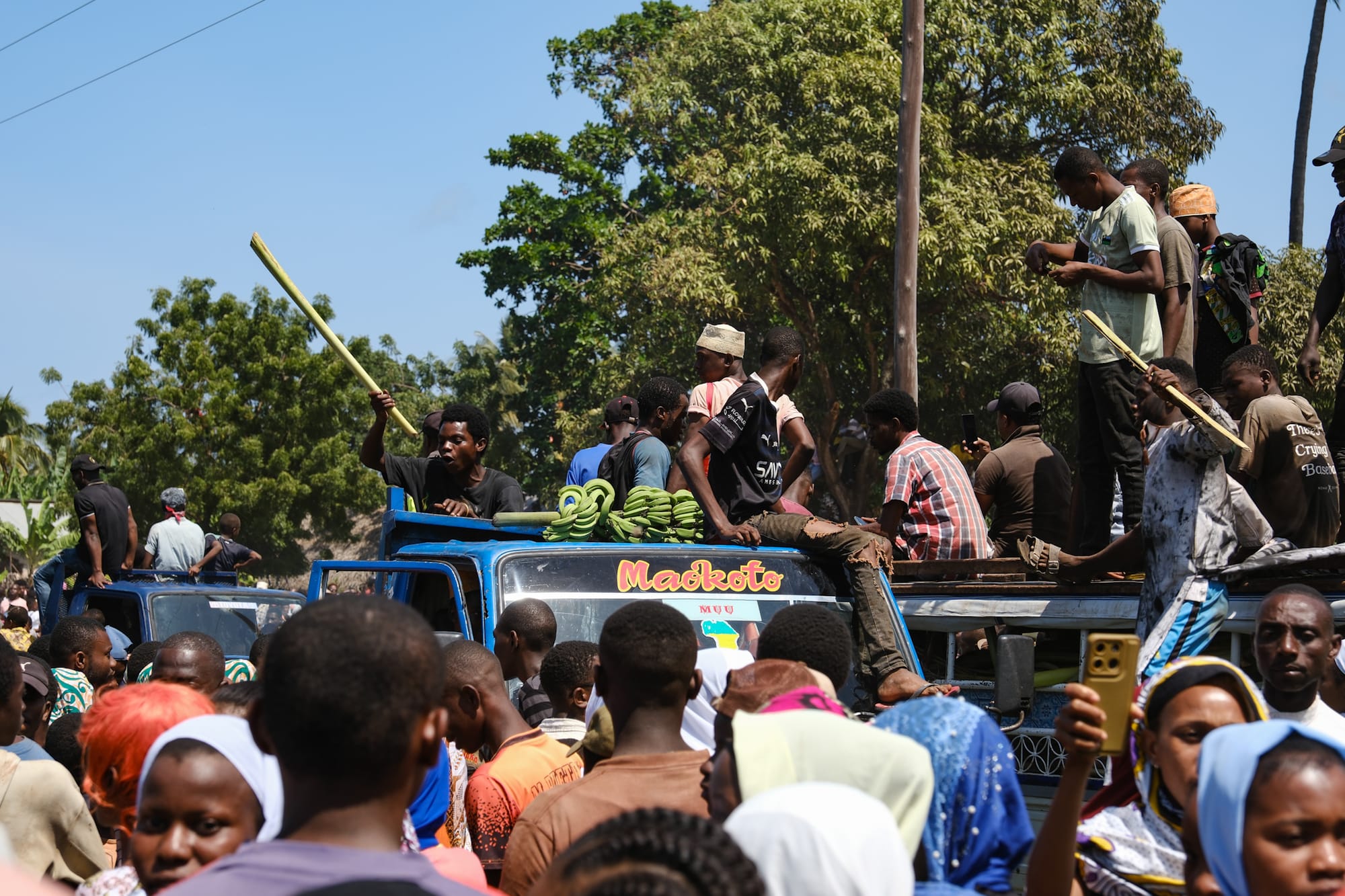
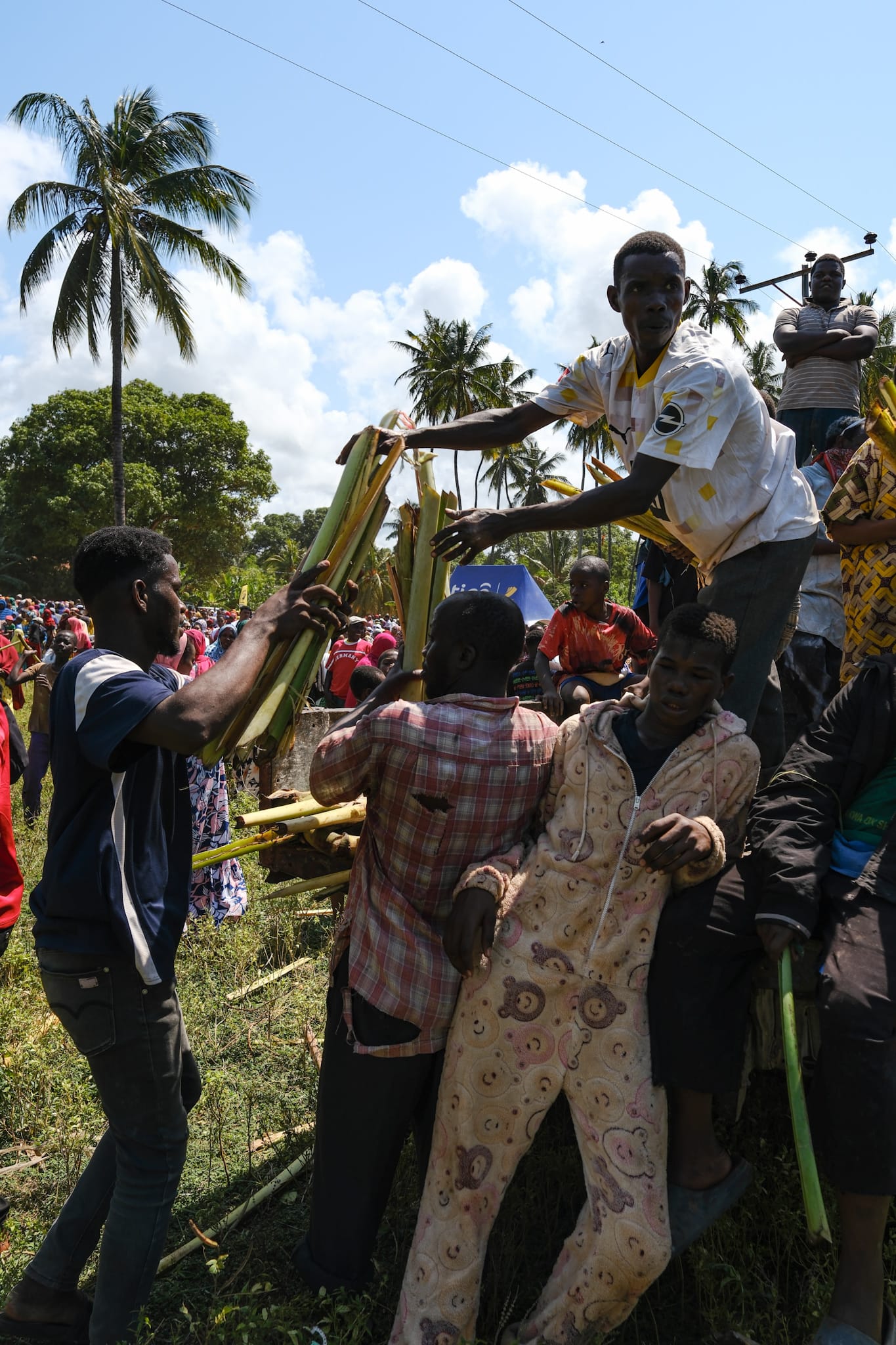
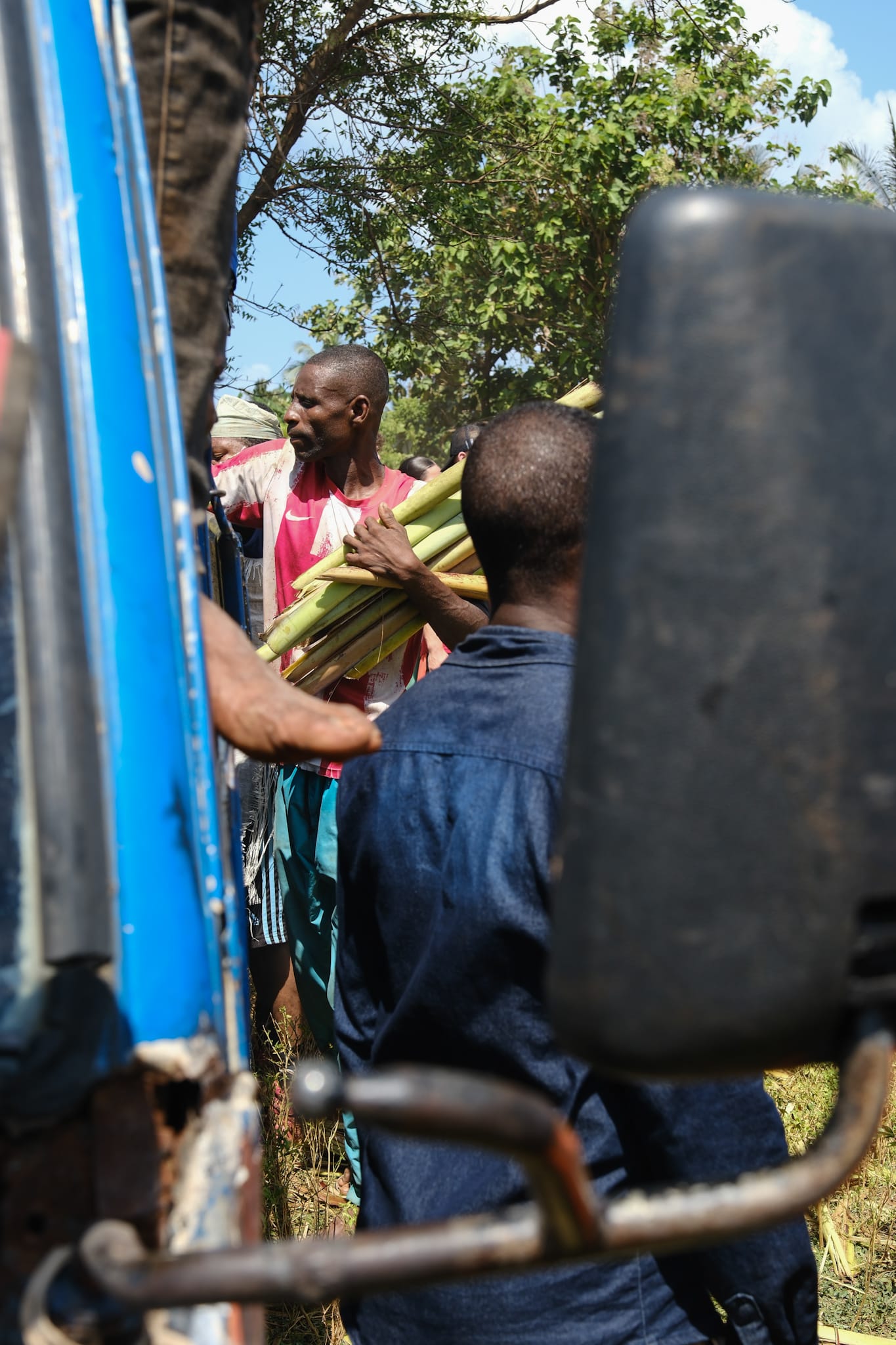
The banana sticks are distributed to participants from trucks, people grab a bunch of them and share them with the other fighters. The venue of the trucks is quite an event, people cheering them and letting them through while some people dance on them.
Only after the first president of Zanzibar, Abeid Amani Karume, took the lead of the country following the revolution of 1964, were banana sticks introduced. Before, wooden sticks were commonly used, but President Karume banned the use of hard objects for the fight in the festival.
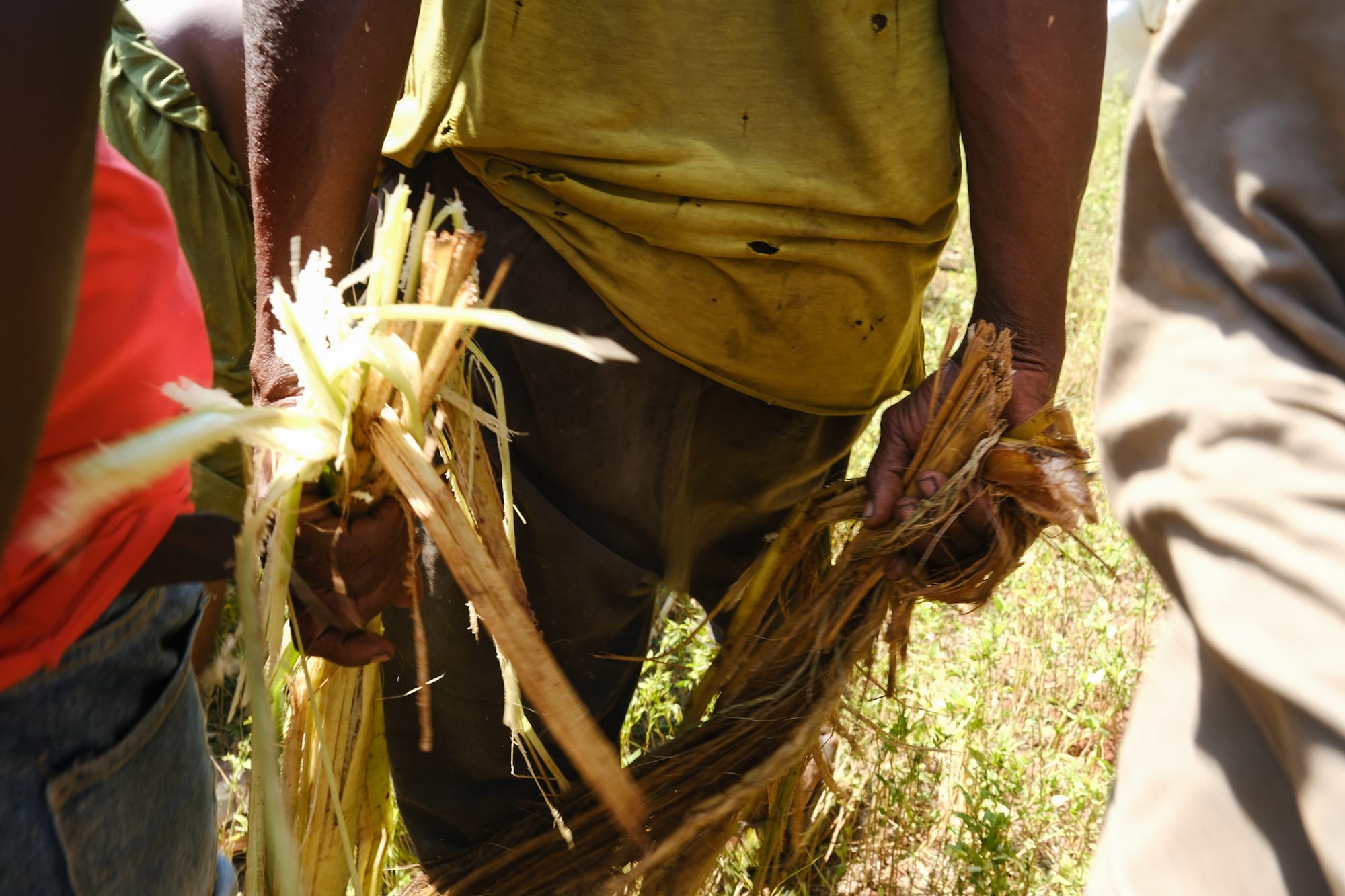
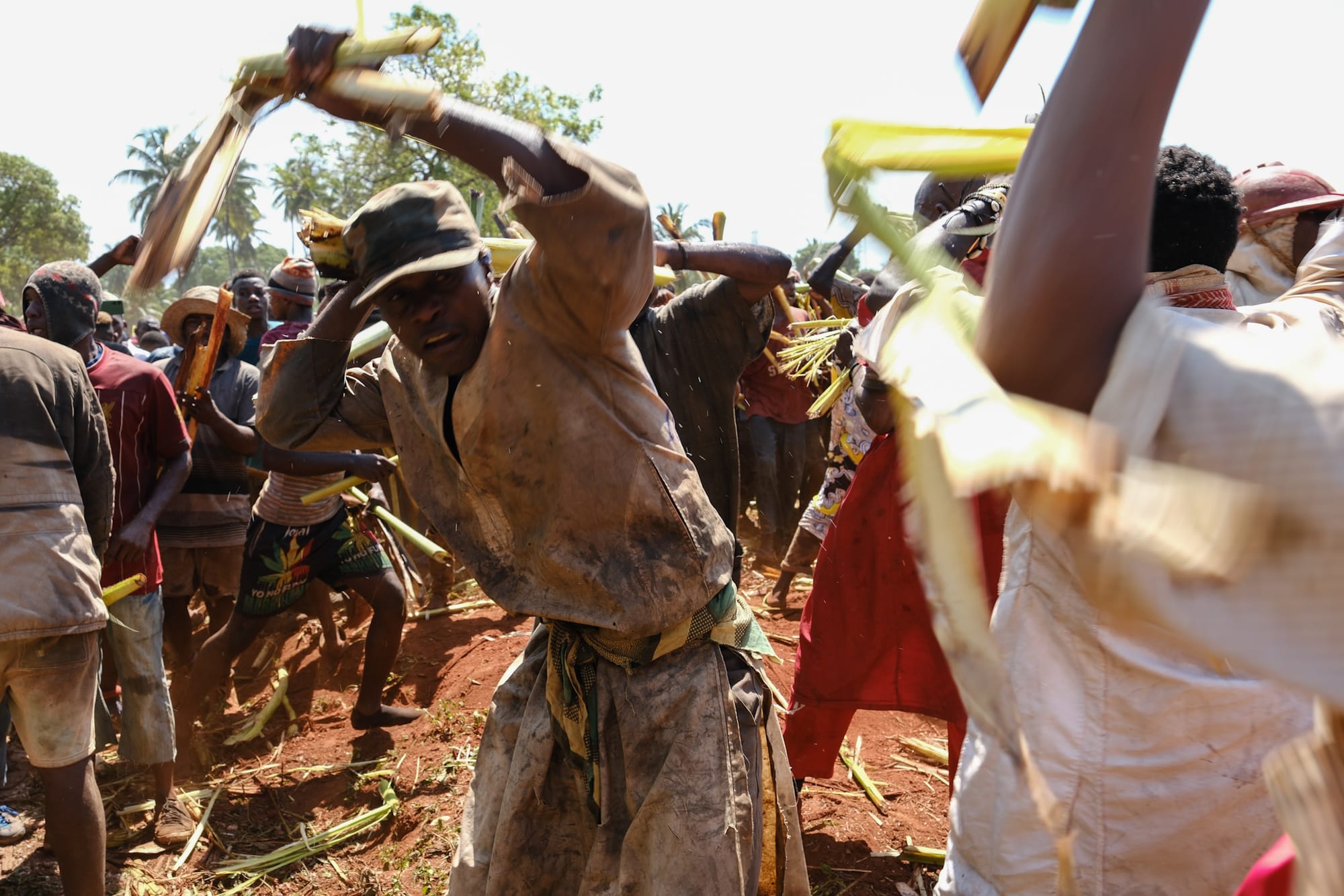
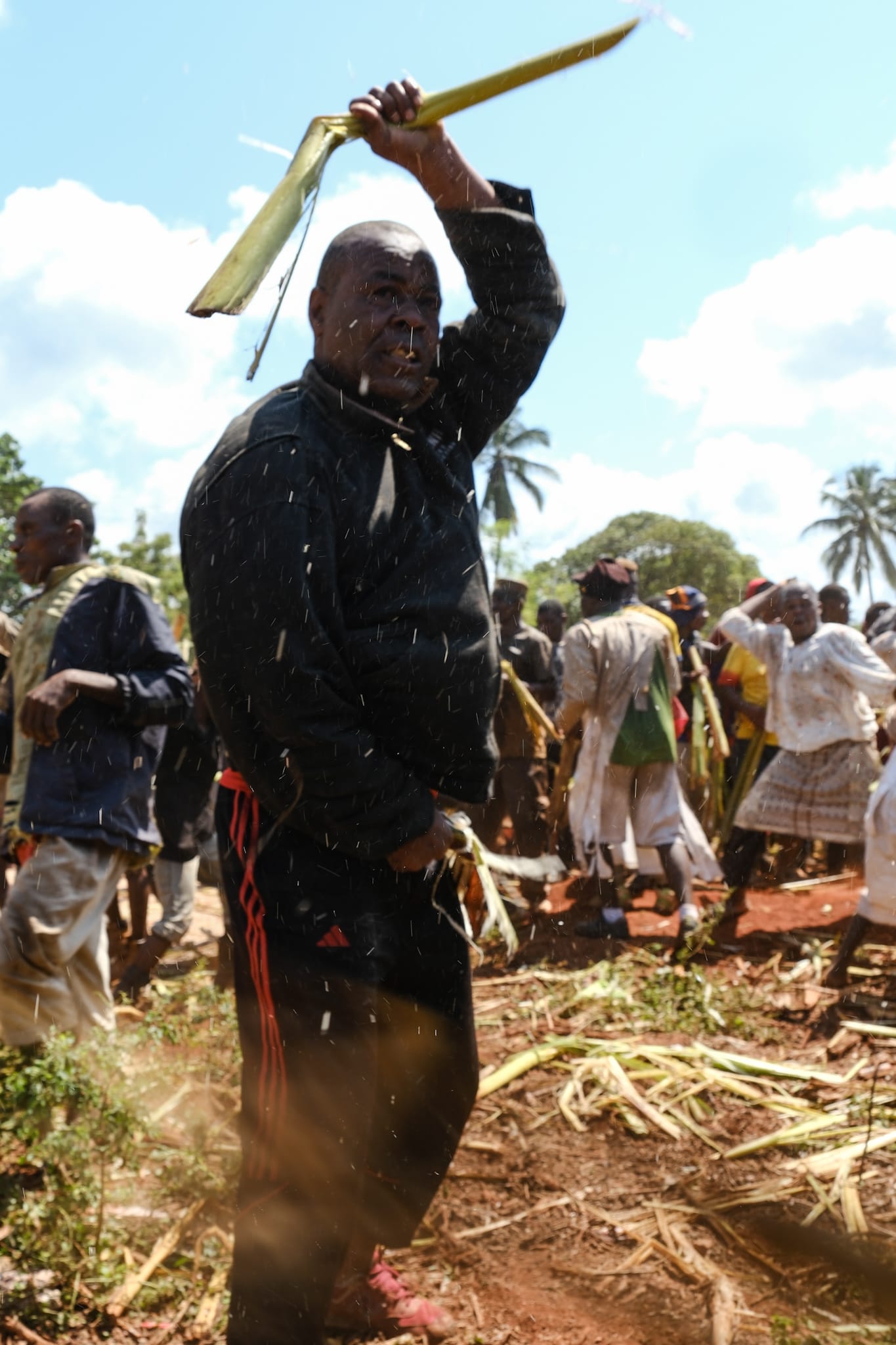
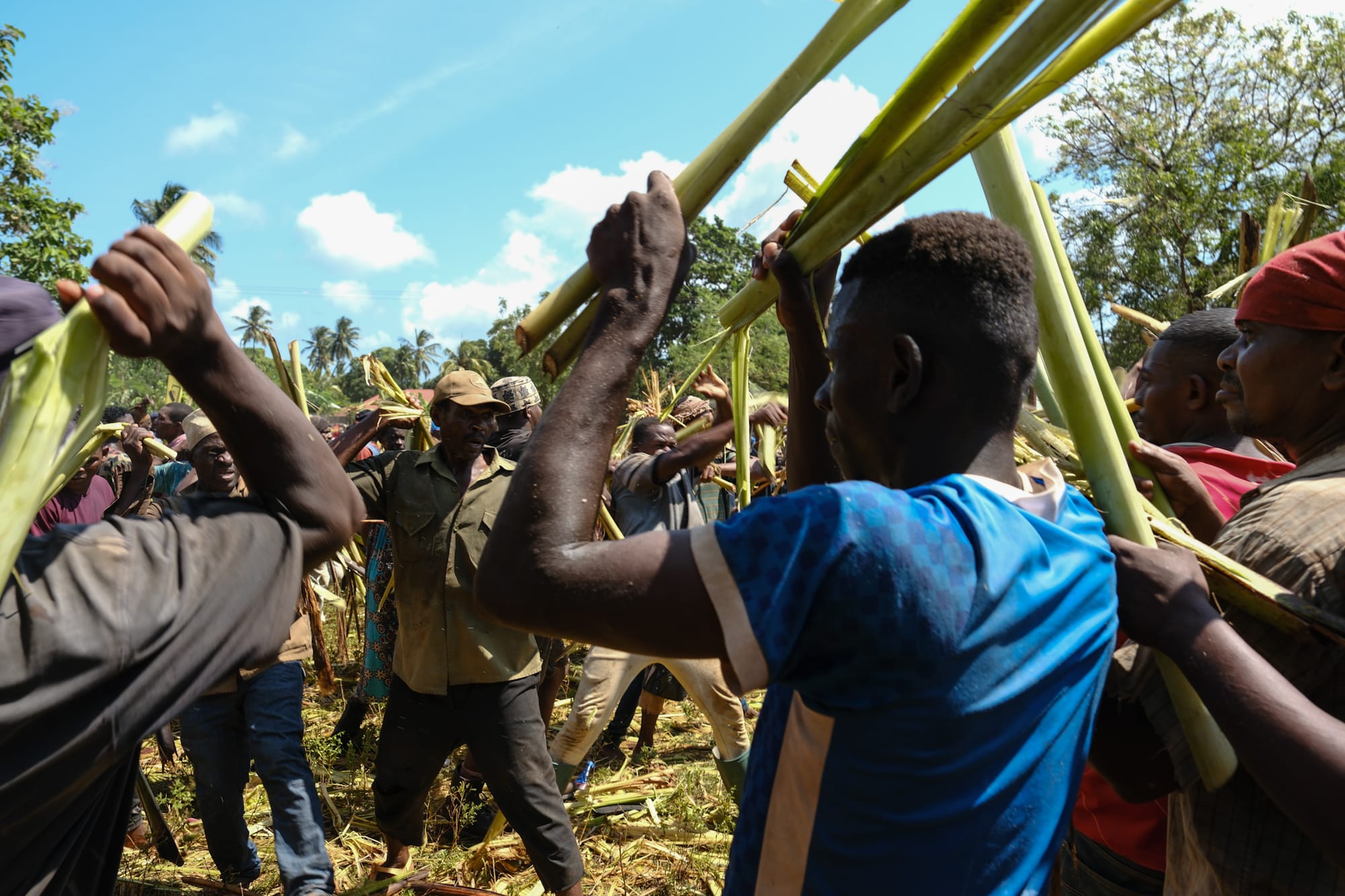
For some reason, it was very hard to figure out the date of this year’s festival. I kept hearing different dates until the day before, when multiple people confirmed it was the following day. Apparently, the stars are read two weeks prior to find out the date of the celebration. The information trickles down from person to person. Don’t believe the date you find on the internet; it’s most definitely the wrong one. But what you can be sure of is that the festival takes place in the middle of July.
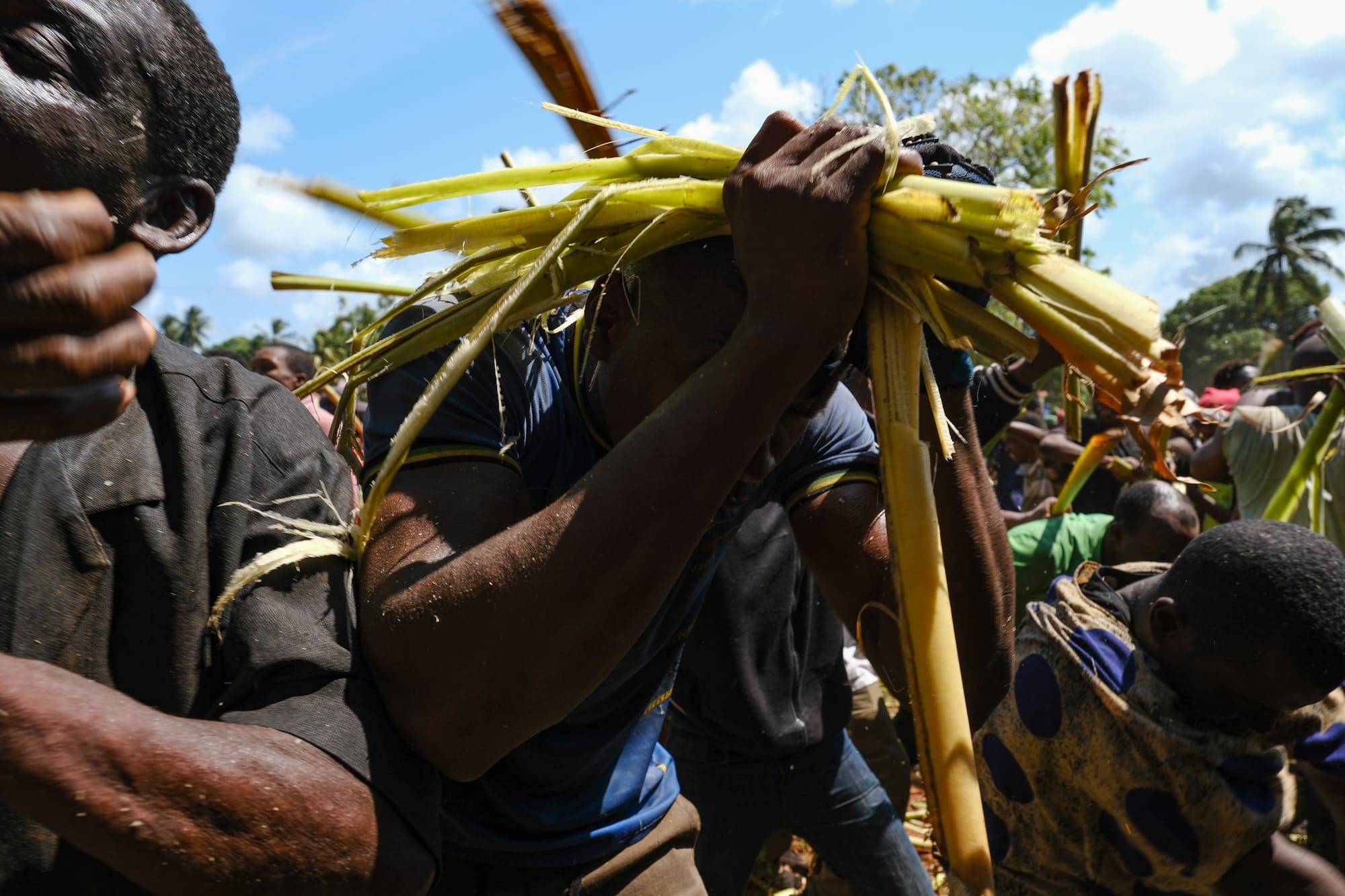
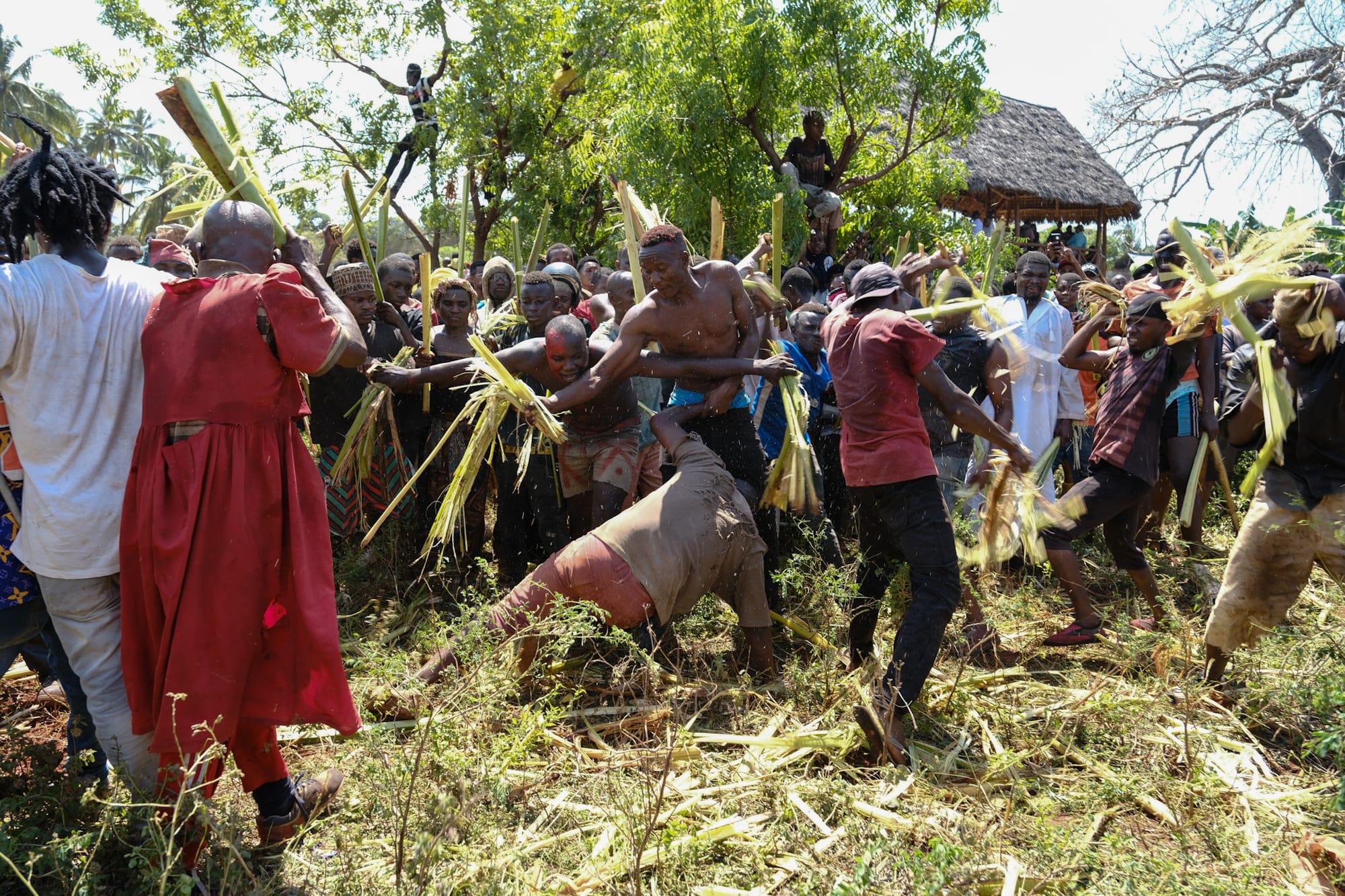
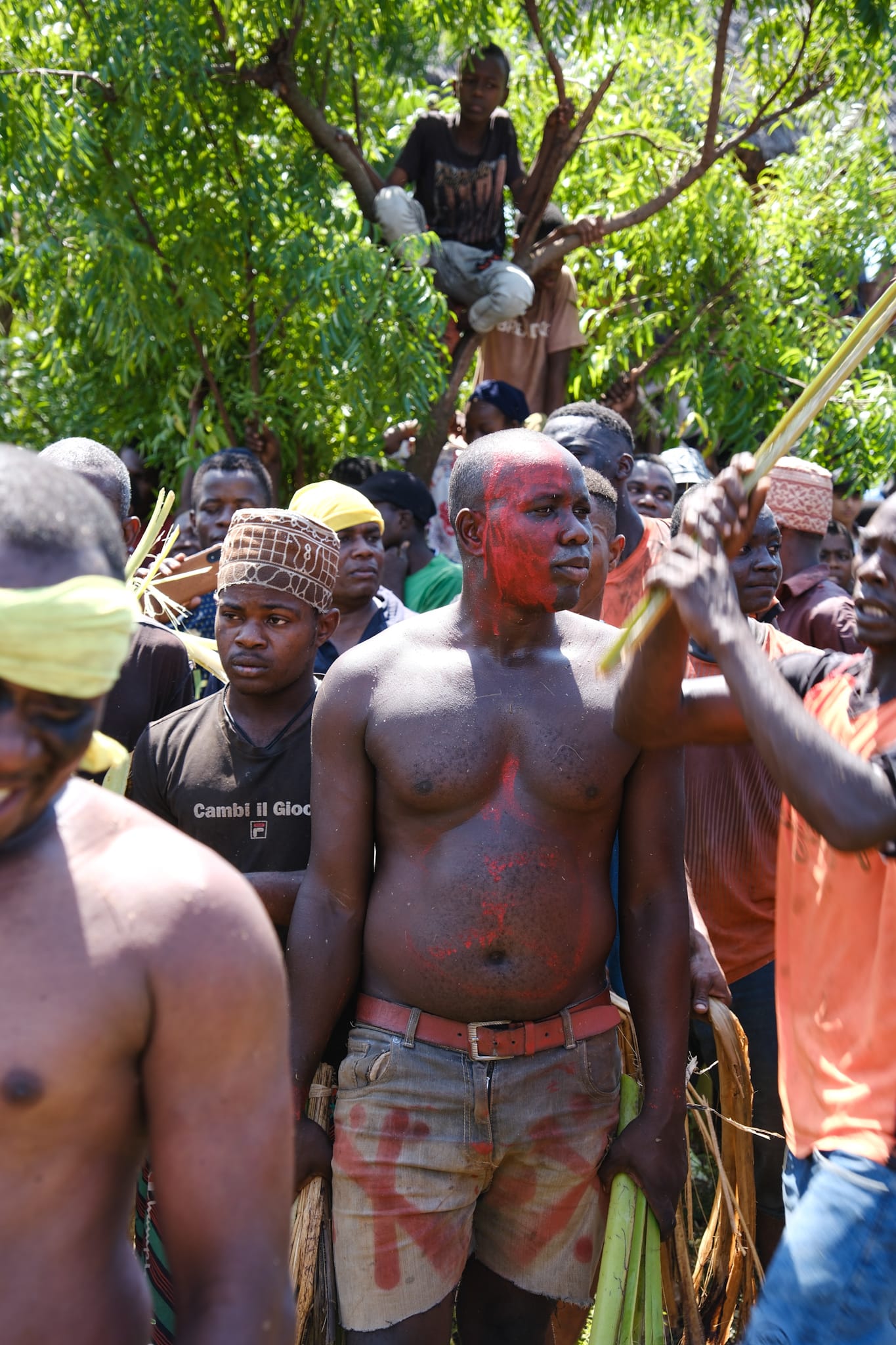
It is said that this tradition is shunned by the Islamic religion, which condemns its violence. But the locals hold dearly to it, and in the past decade, the government even embraced it as part of the local culture. Rumors say that despite their strong faith, the people participating in the battle use it as a day with exceptions to the rules of their religion. Swearing and cross-dressing are commonly seen during the event, which on other days would hardly be tolerated.
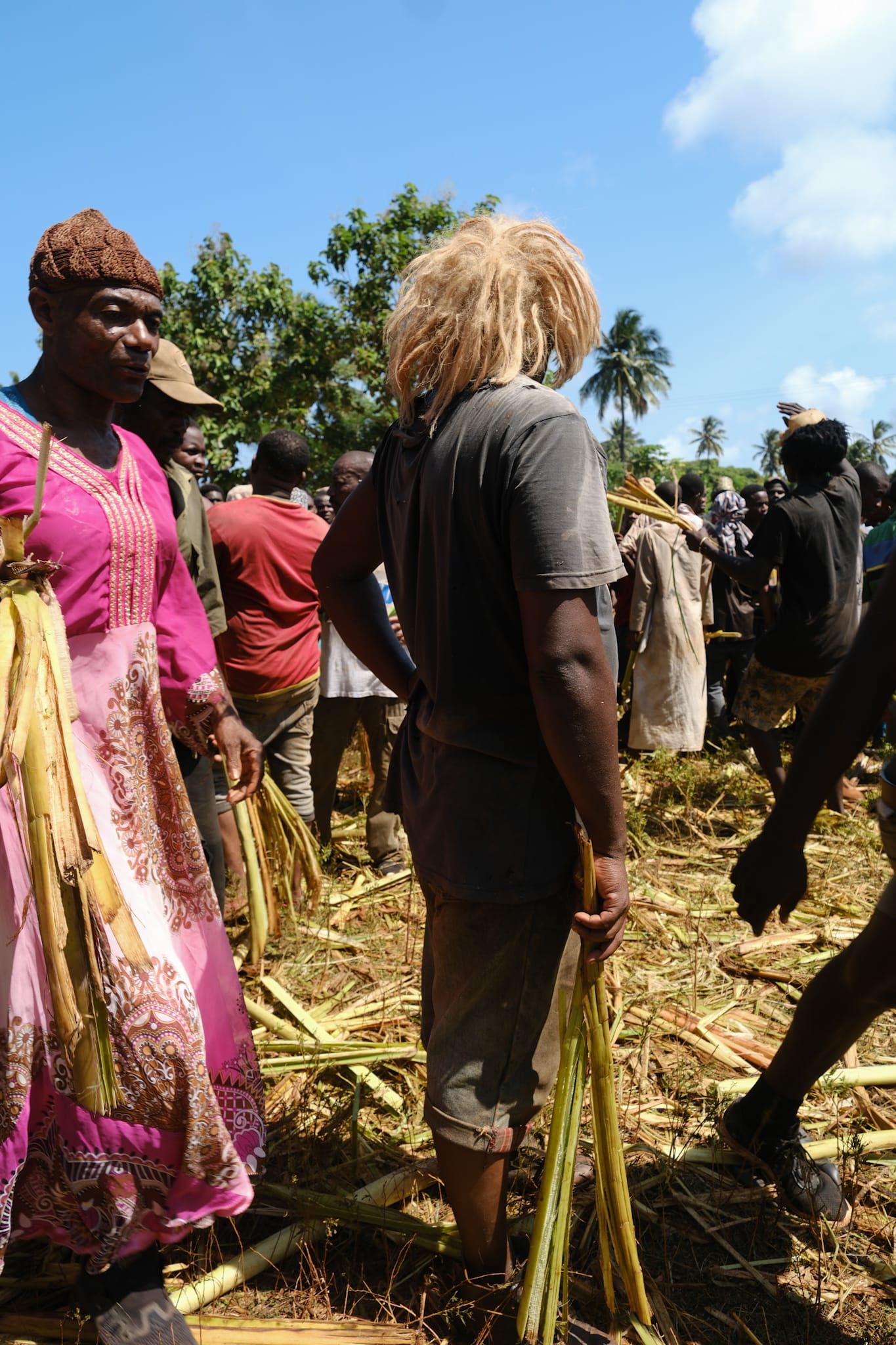
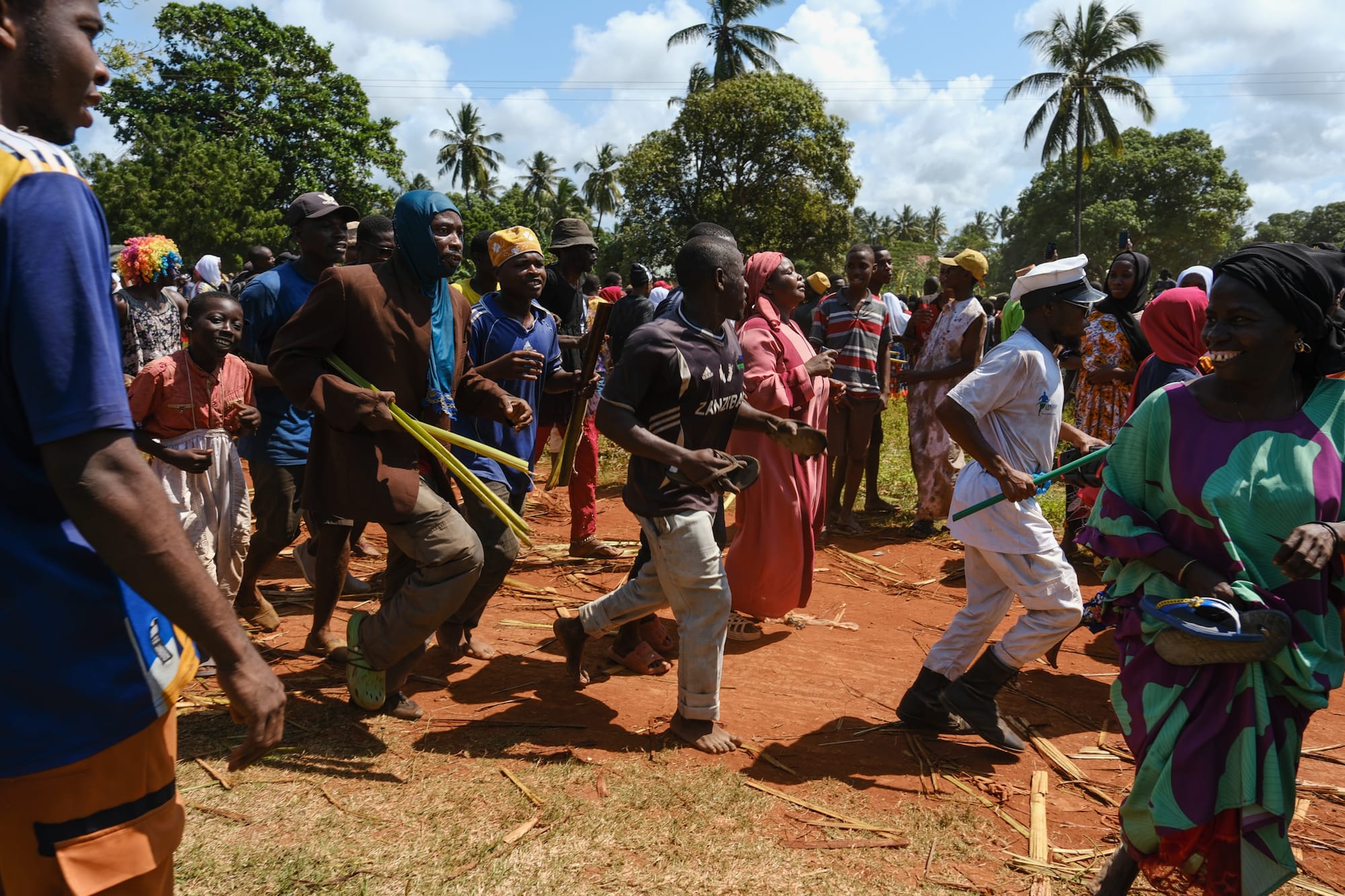
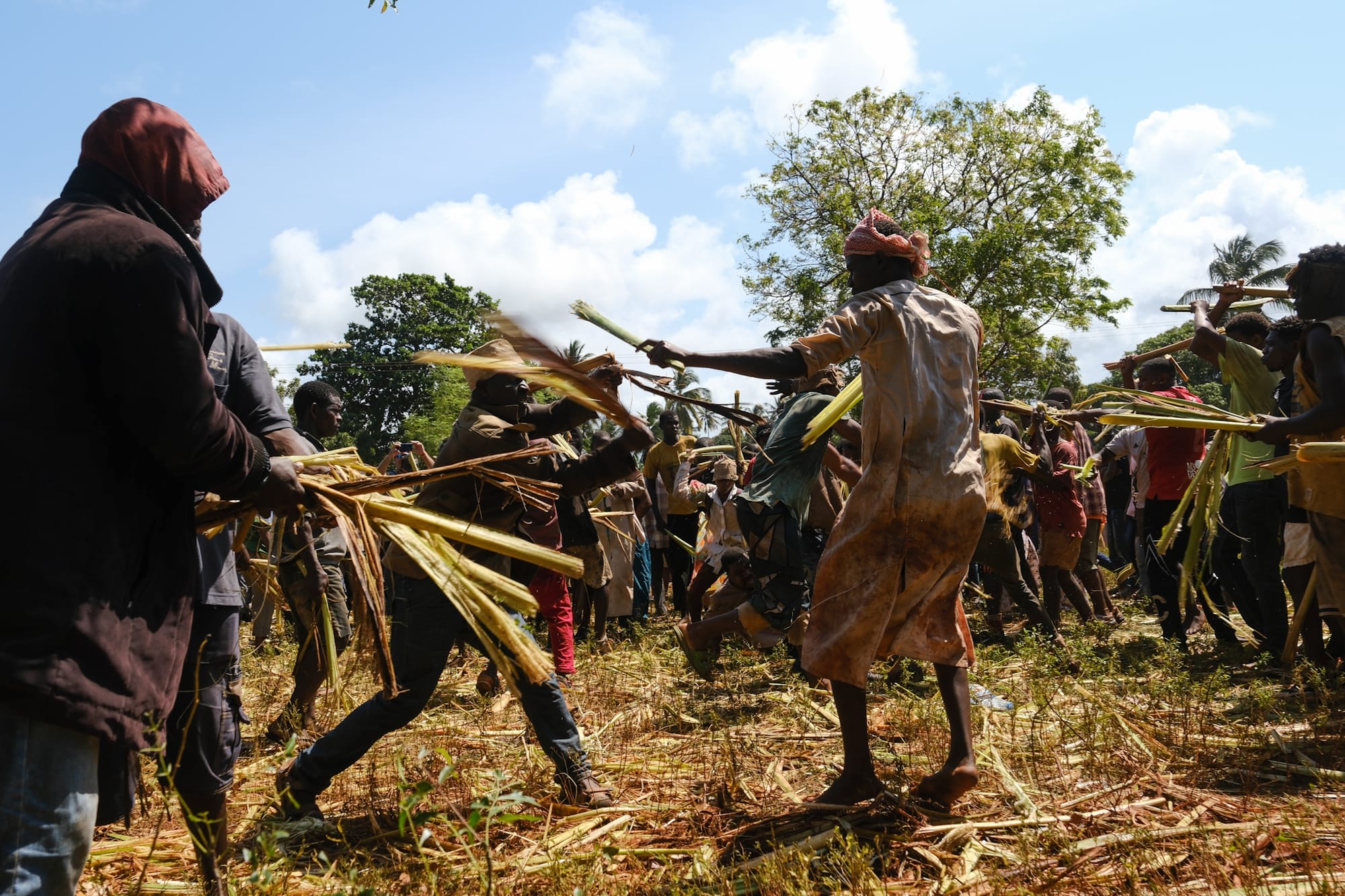
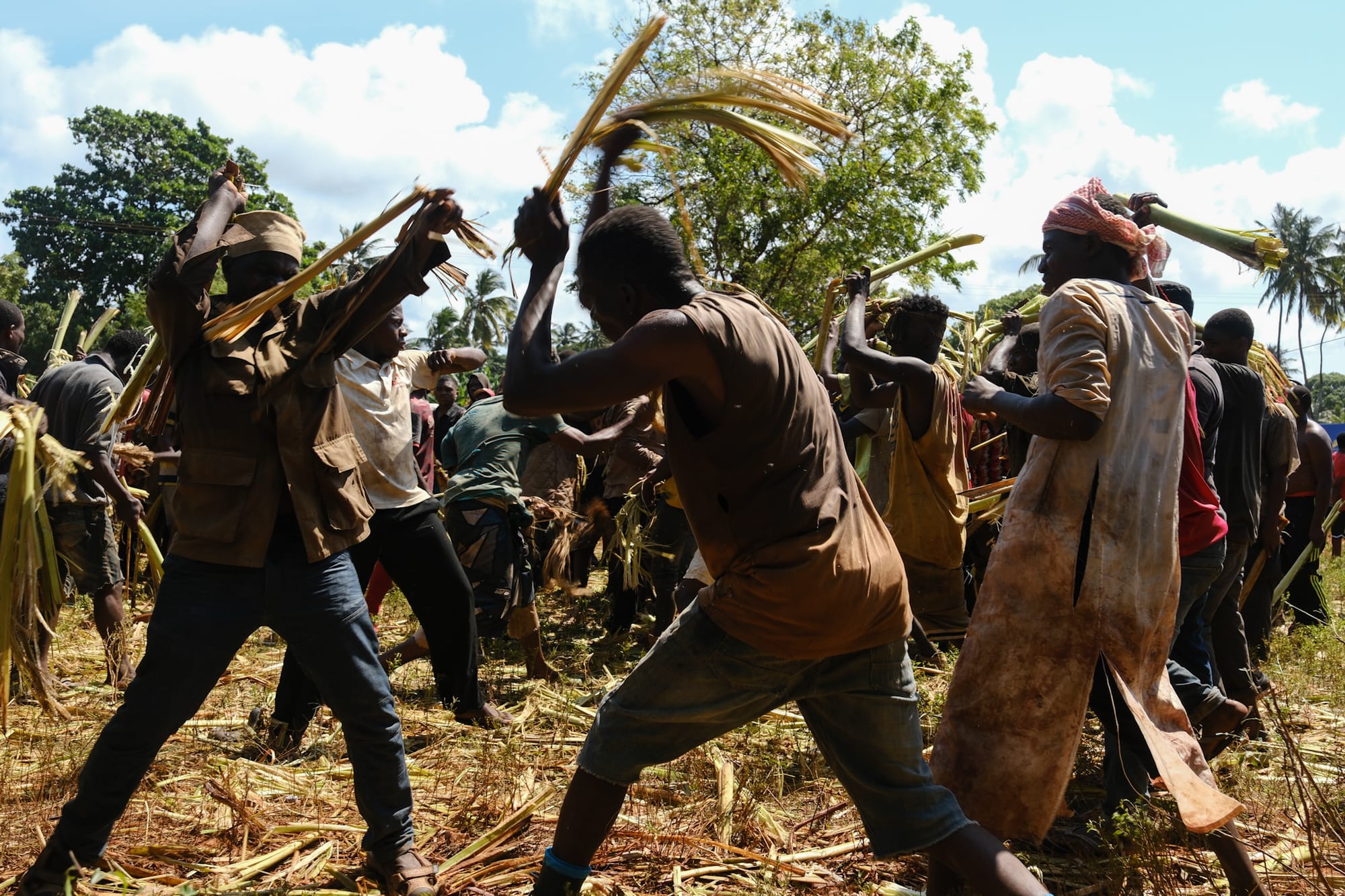
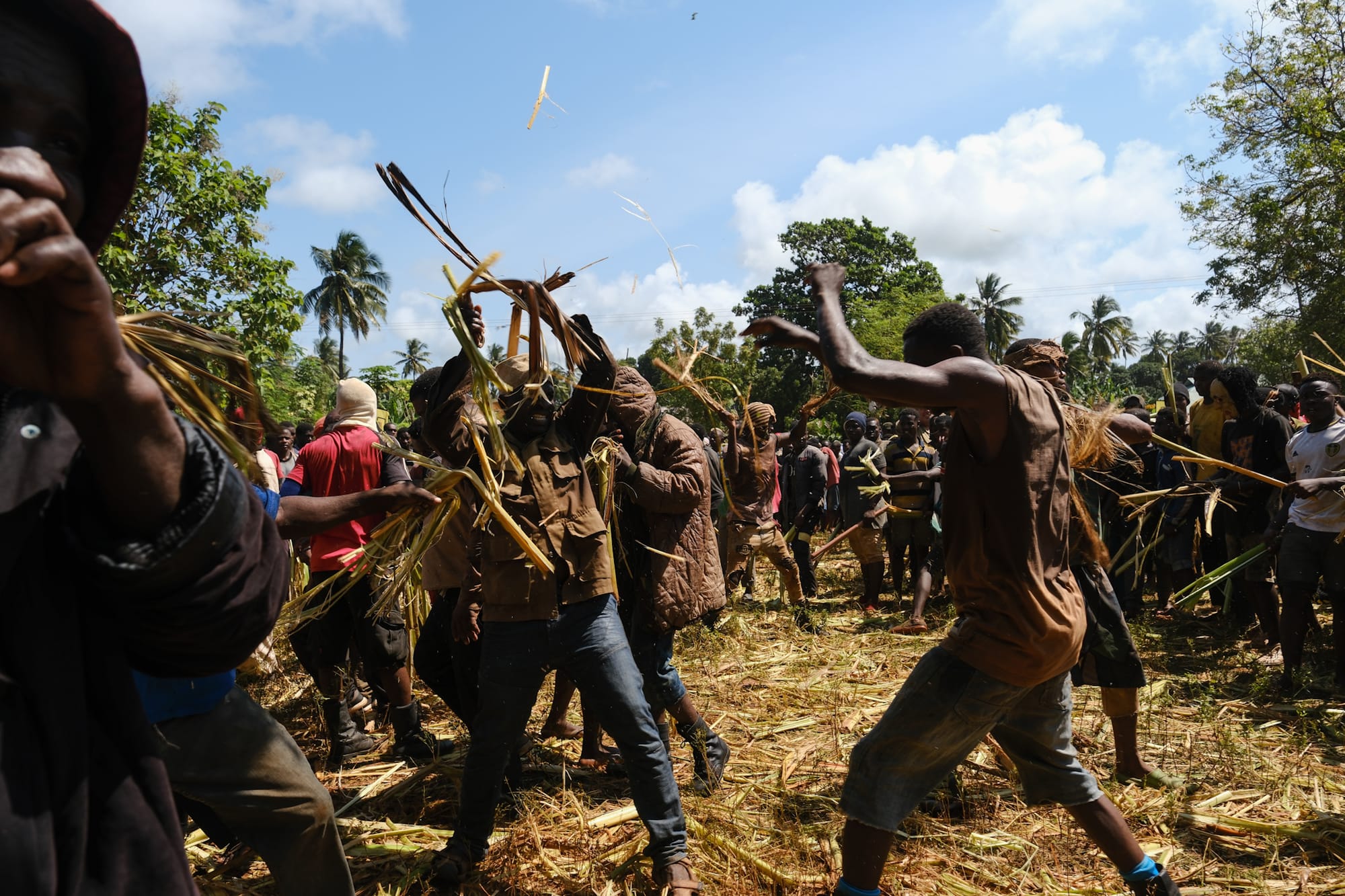
Once the battle is finished, participants flock to the sea to wash themselves off. There is a meaning associated with it, but I have to do some more research. Just like the rest of the festival, which I have no idea what is involved. The only other facts I know are that it involves burning a purposely built hut and eating a lot of food.
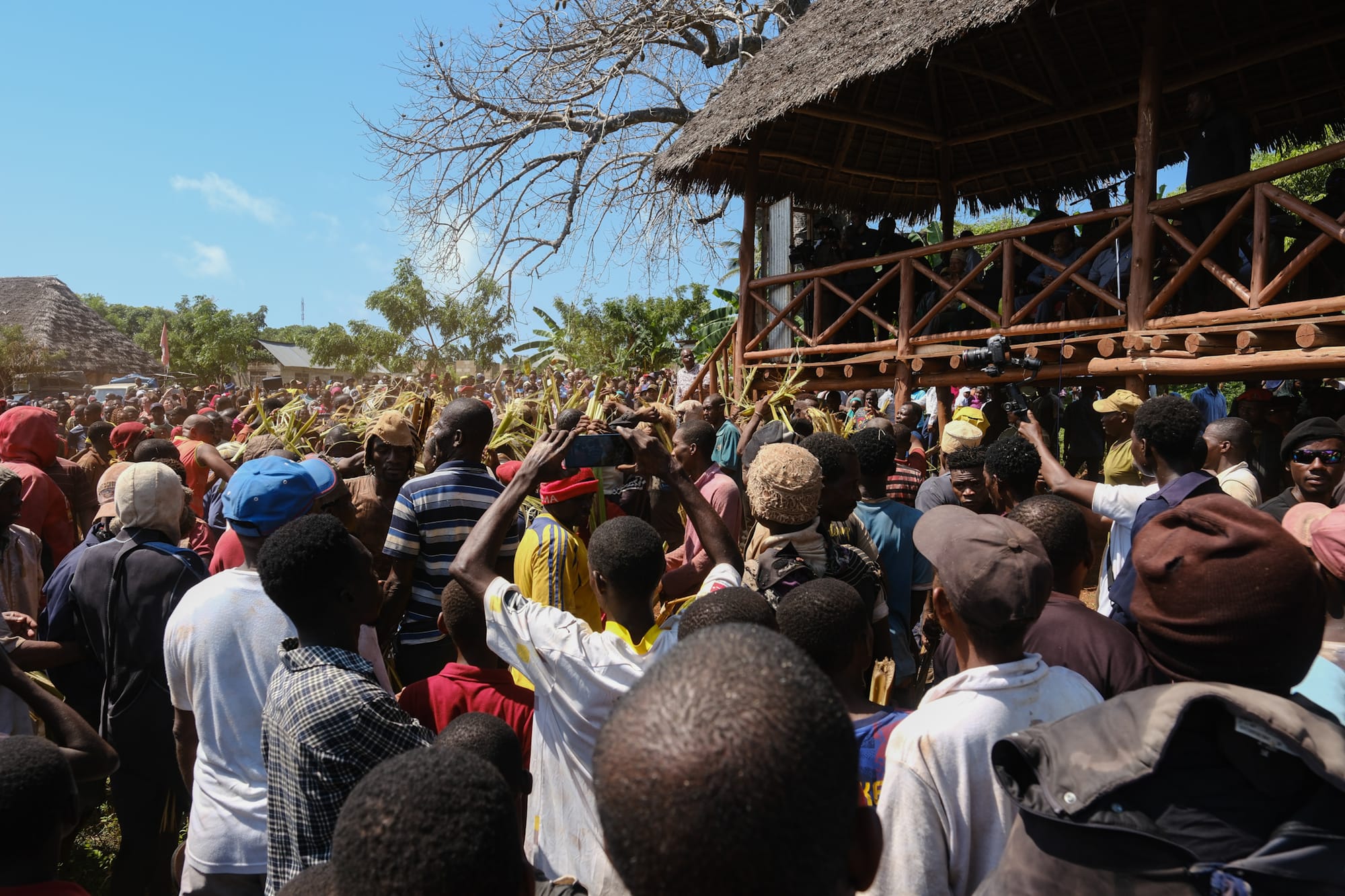
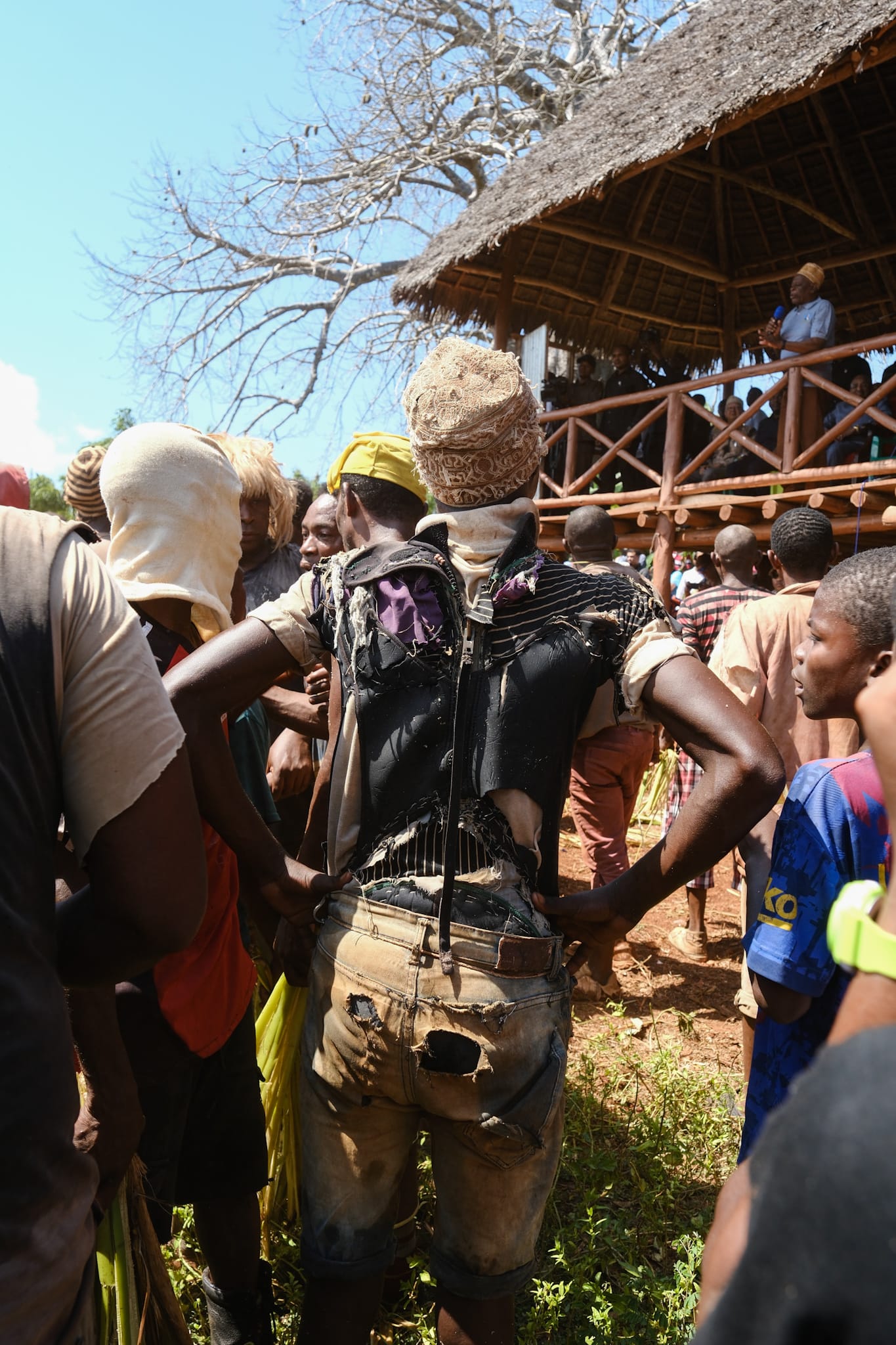
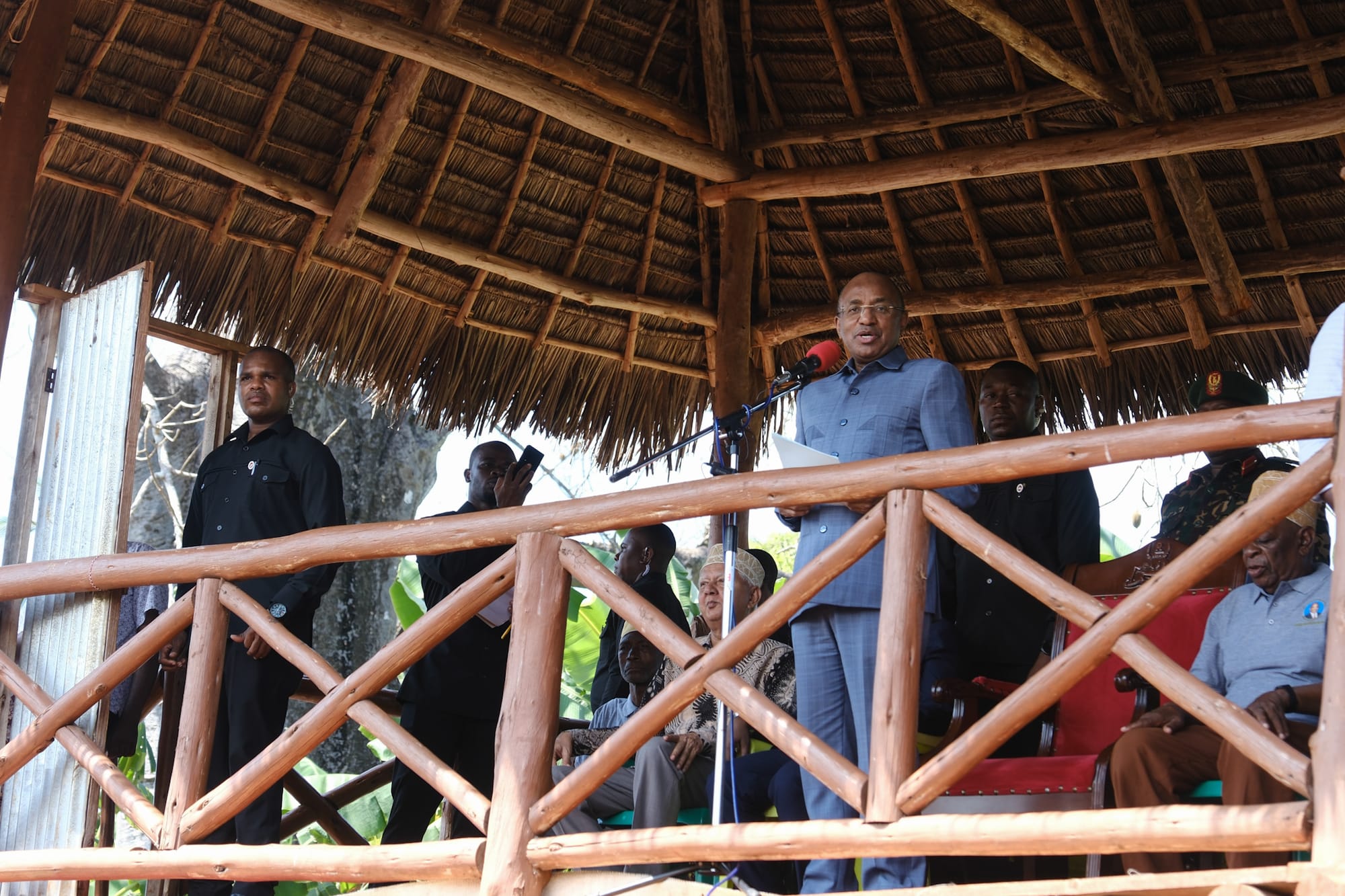
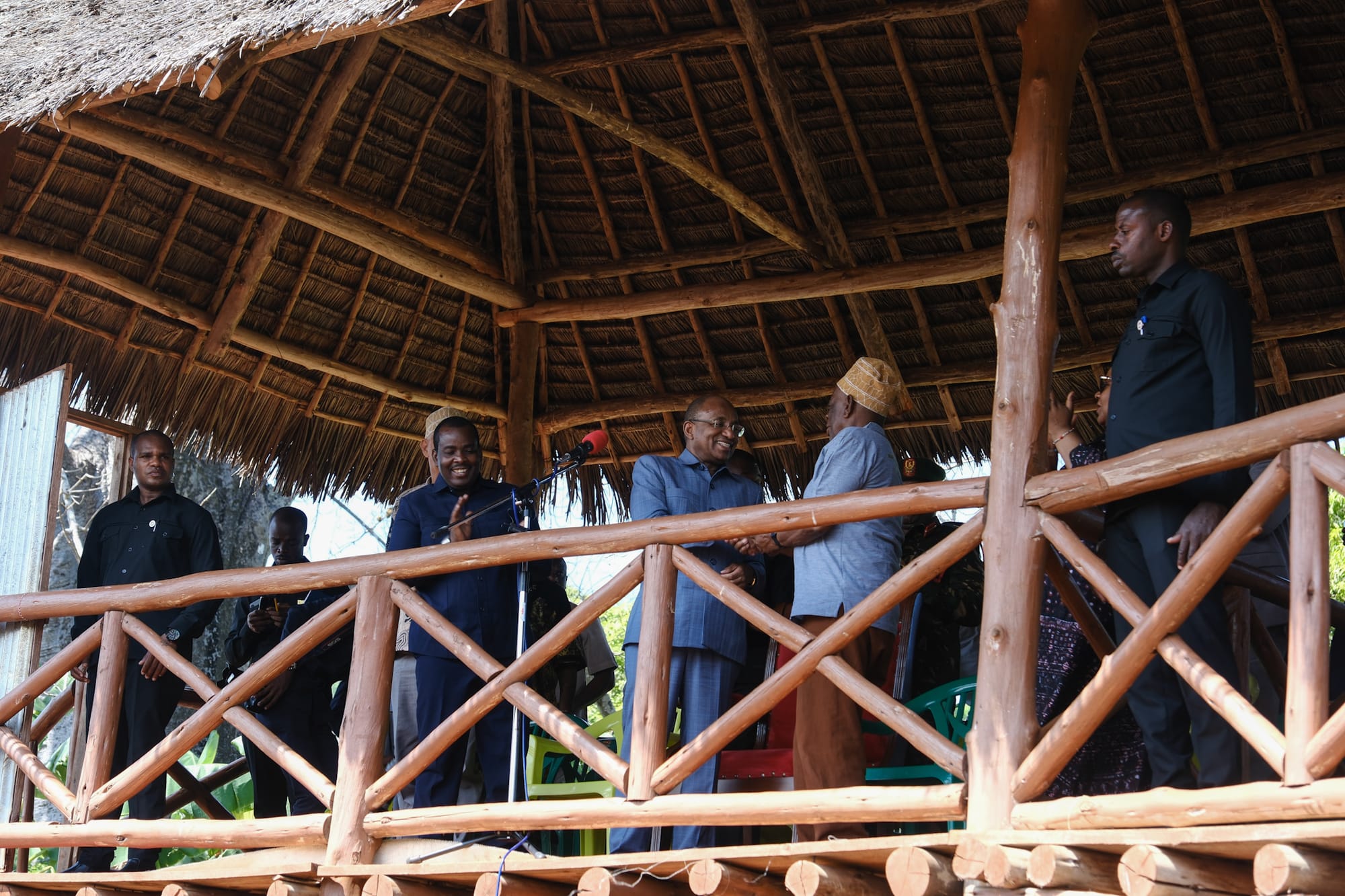
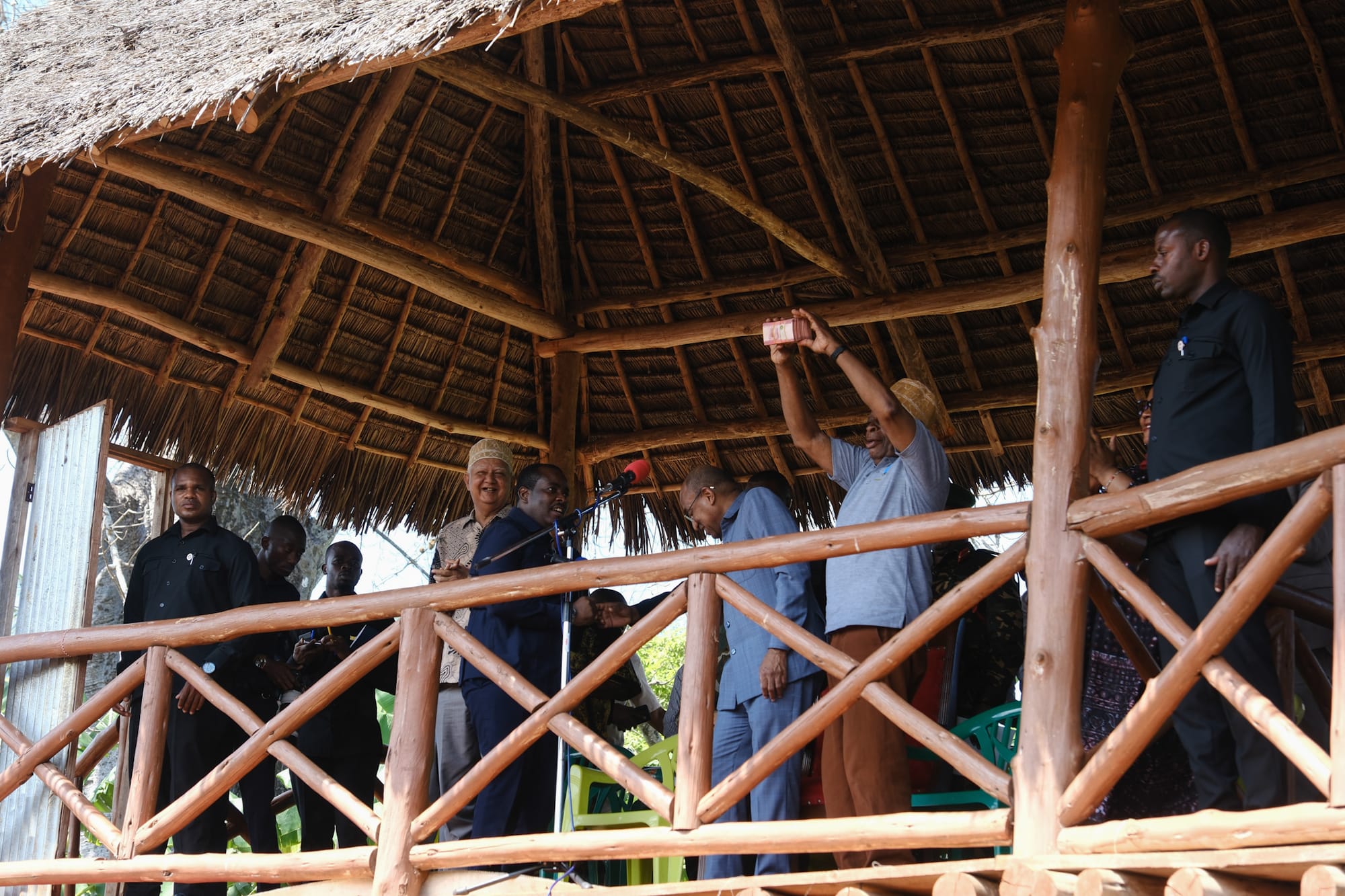
The president of Zanzibar, H.E. Dr. Hussein Ali Mwinyi, and other officials watching the fight and addressing the crowd afterwards.
If you know anything else about Mwaka Kogwa or have any comments about my article, feel free to get in touch with me via e-mail at [email protected]. I'll leave you with the short documentary about the festival.
